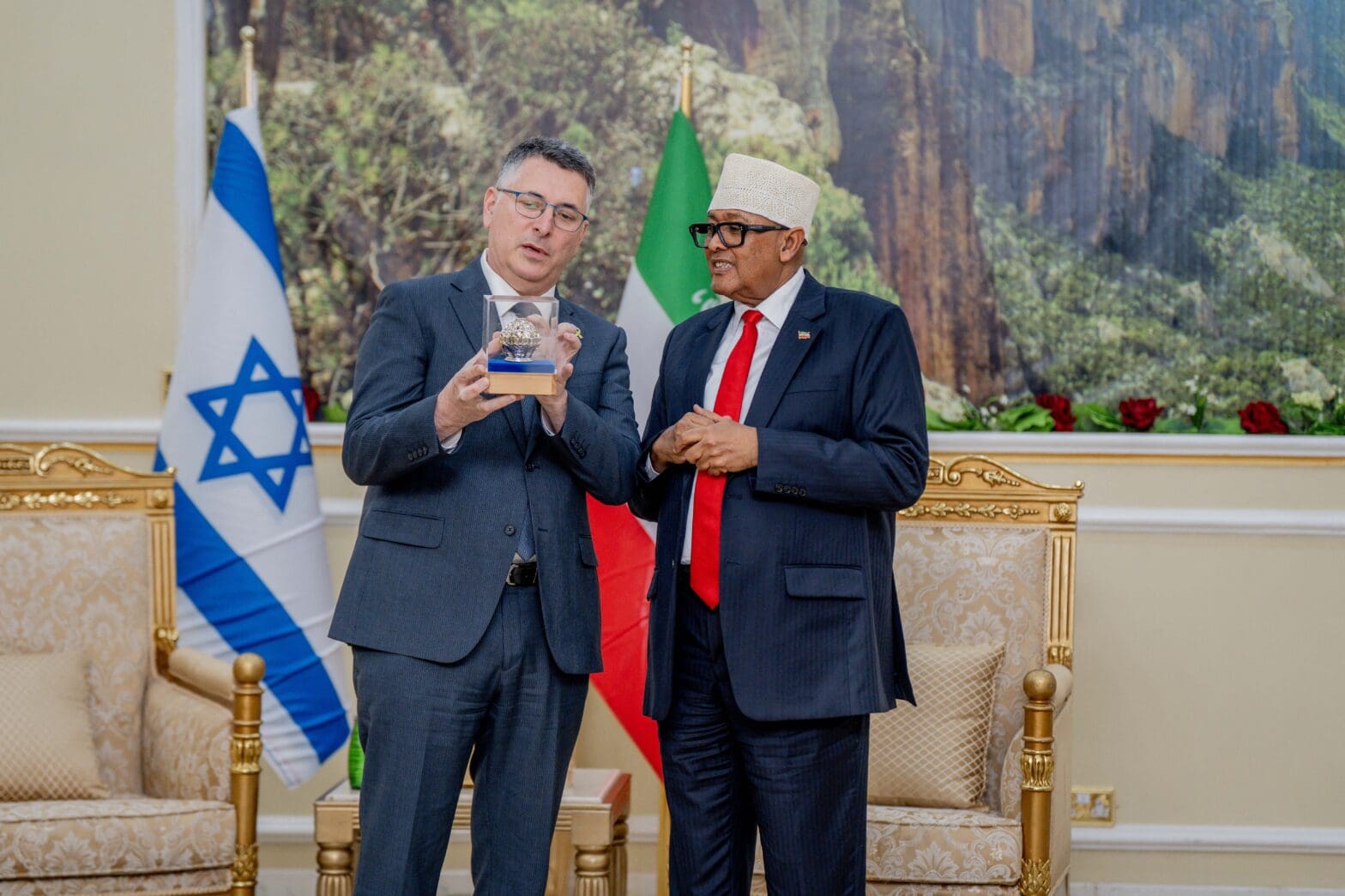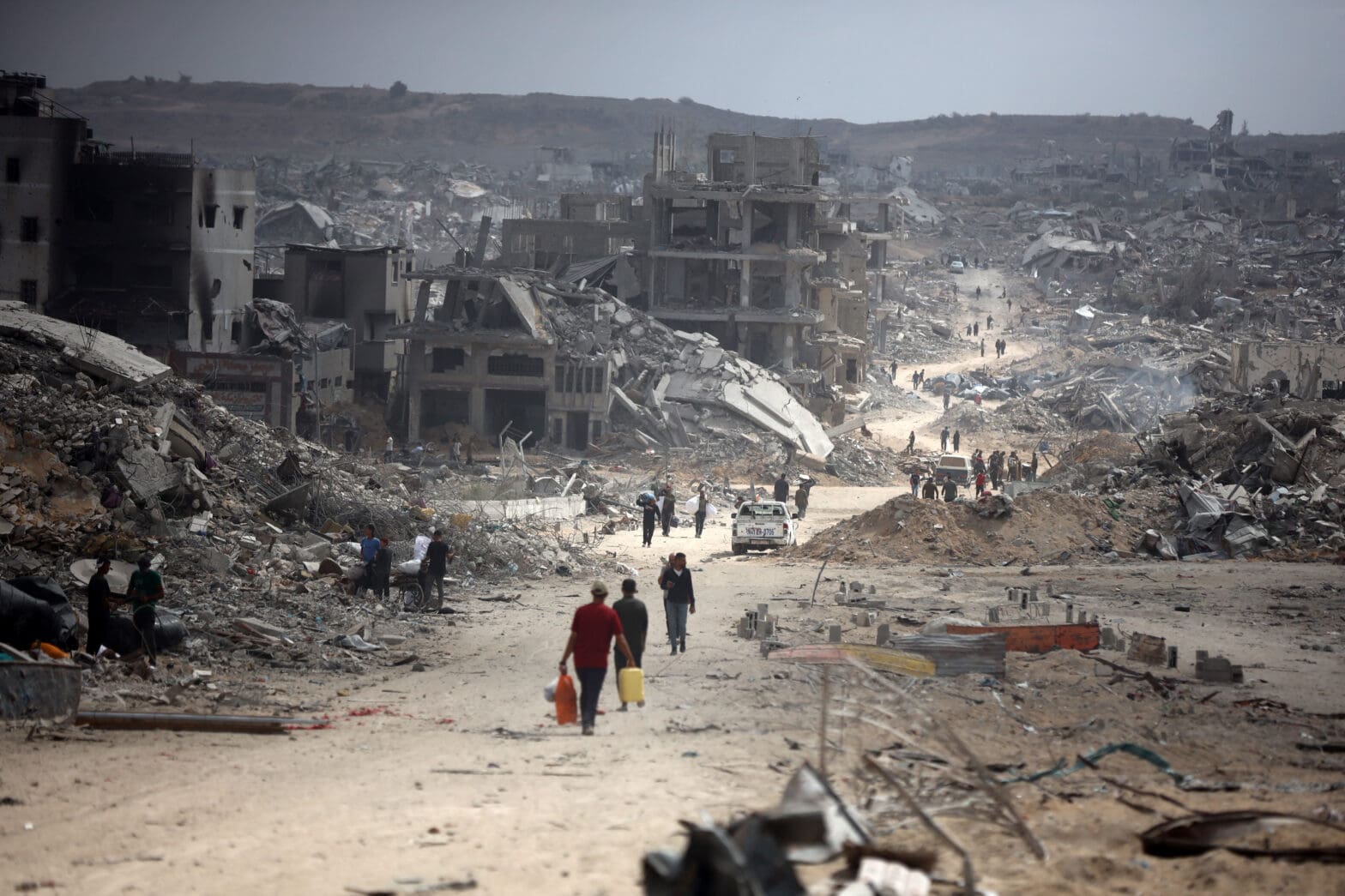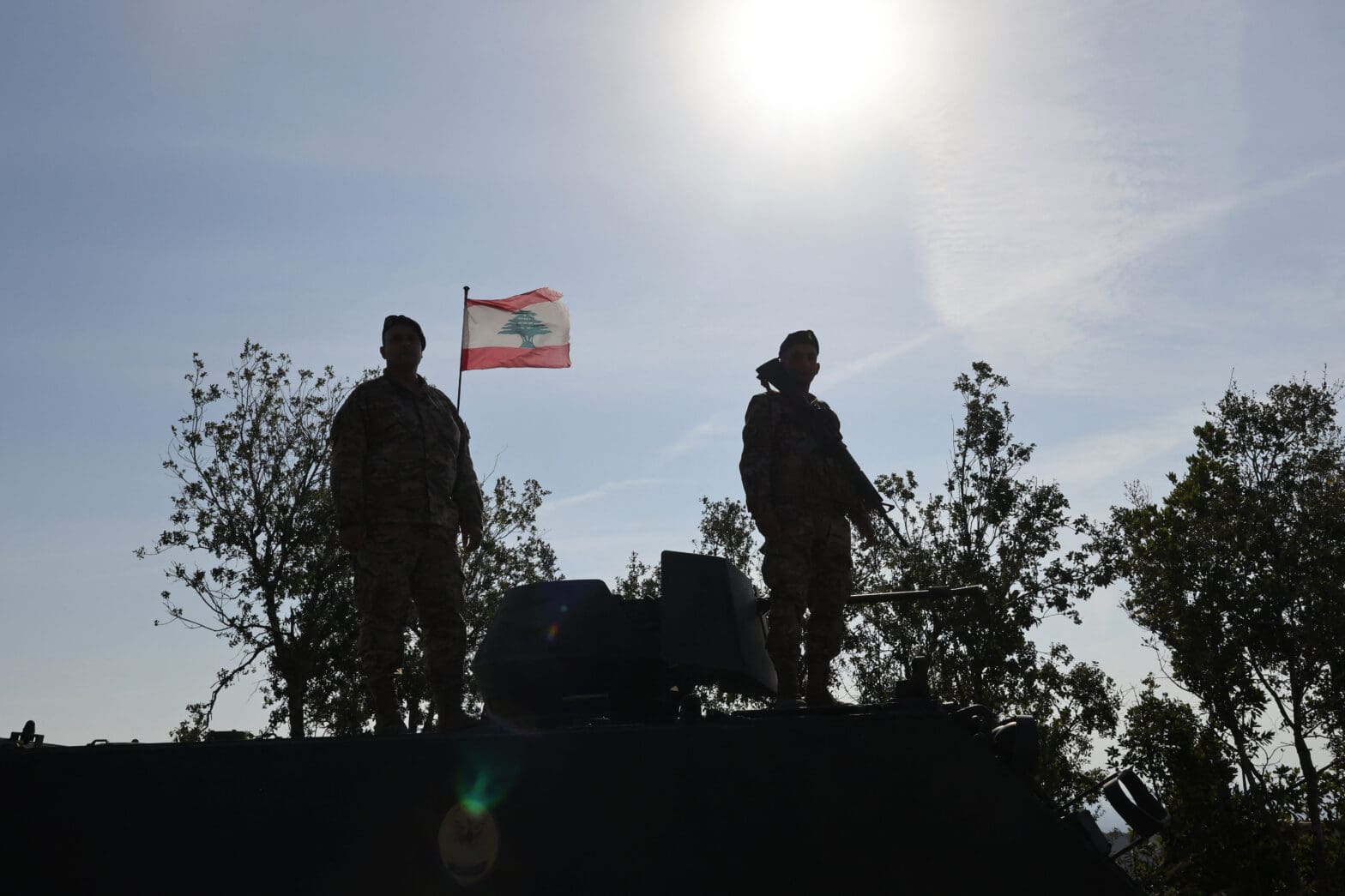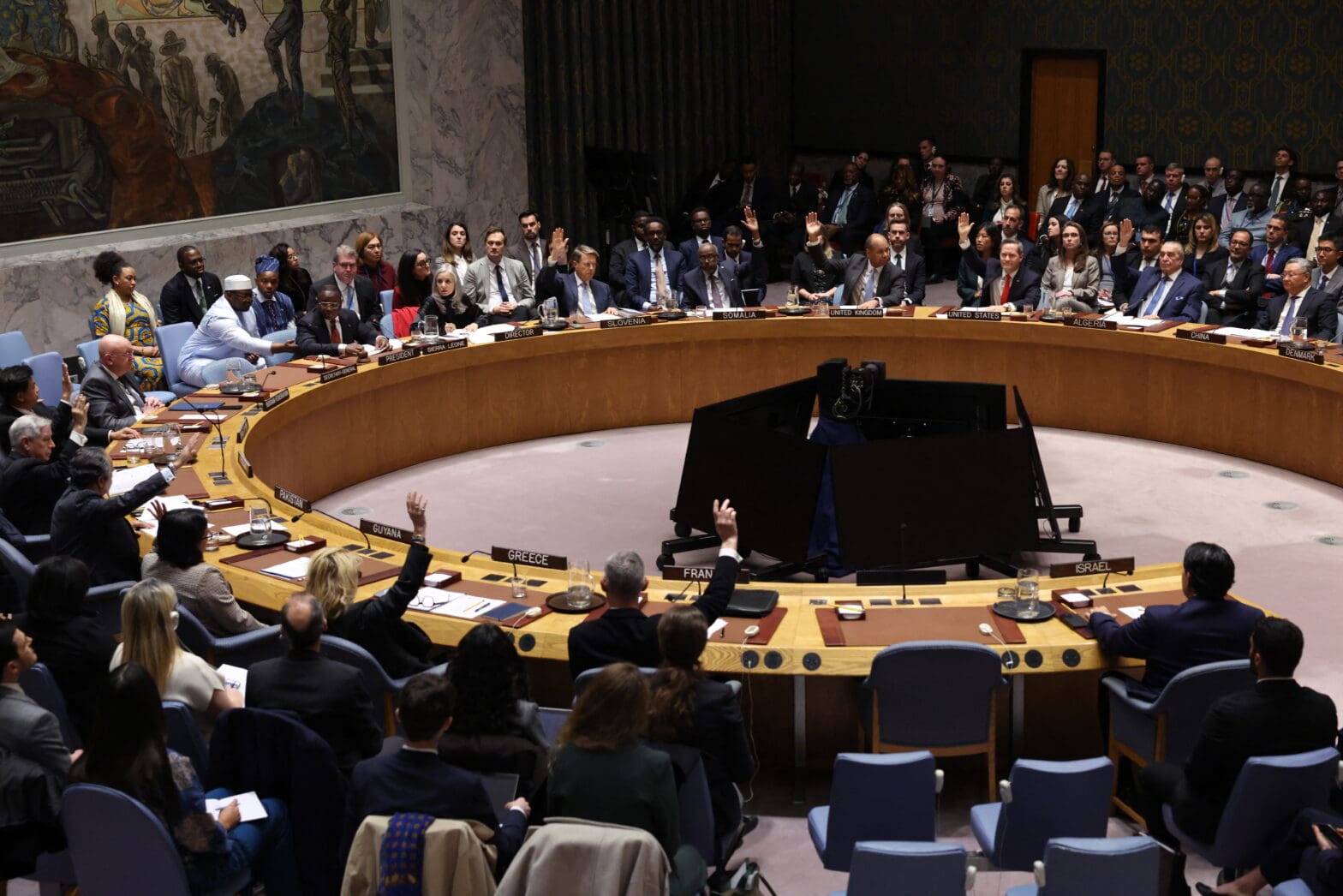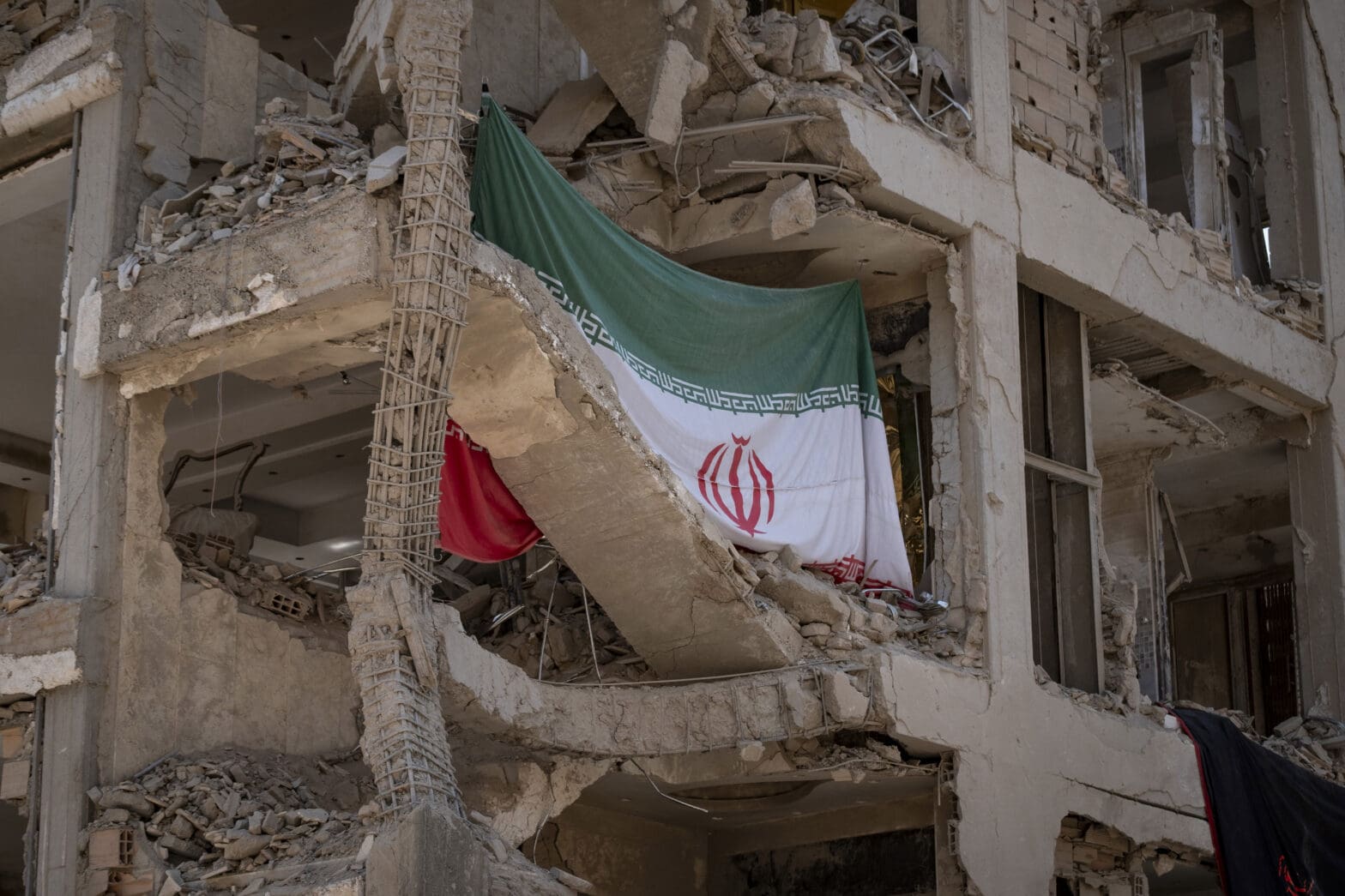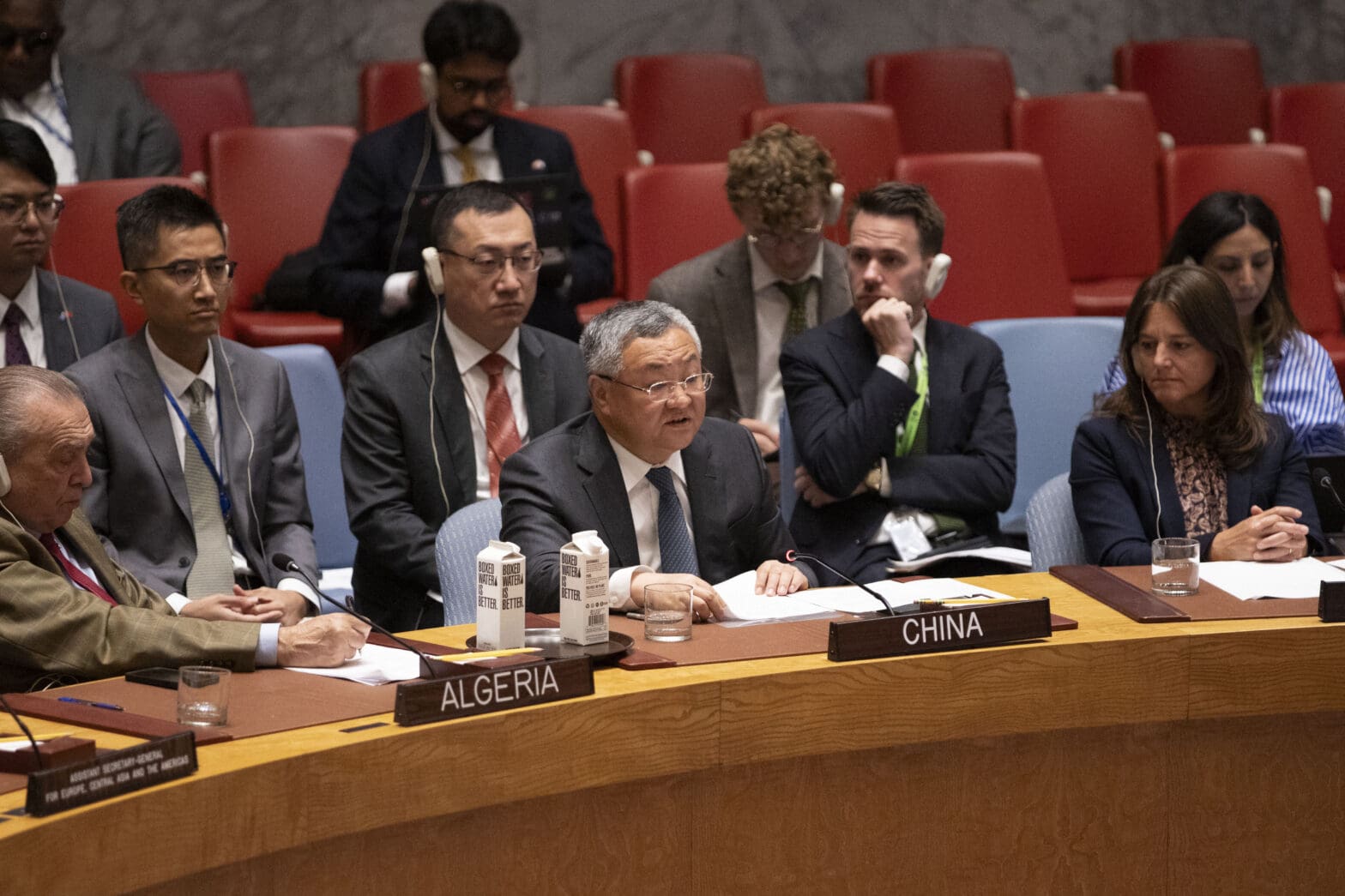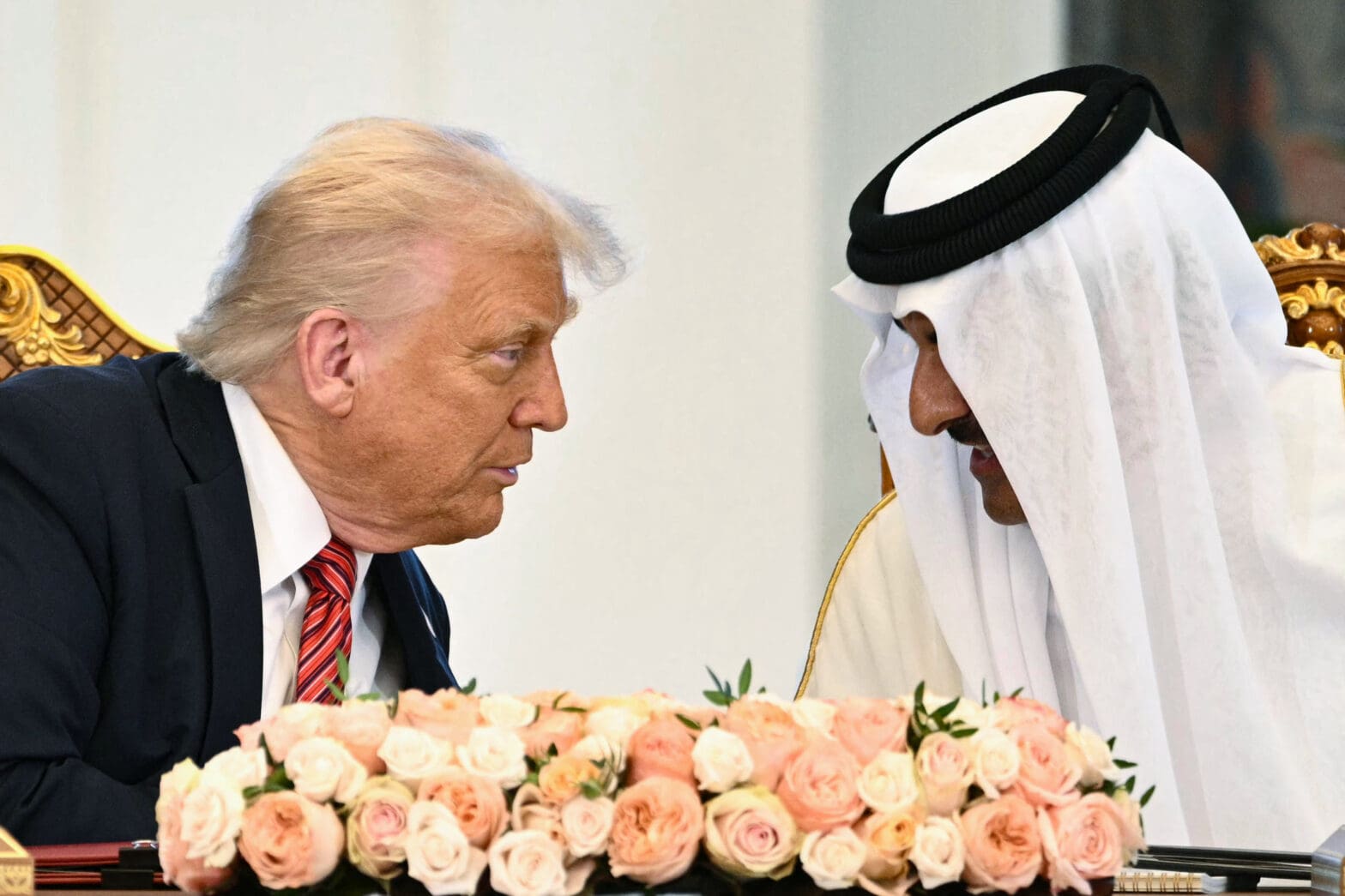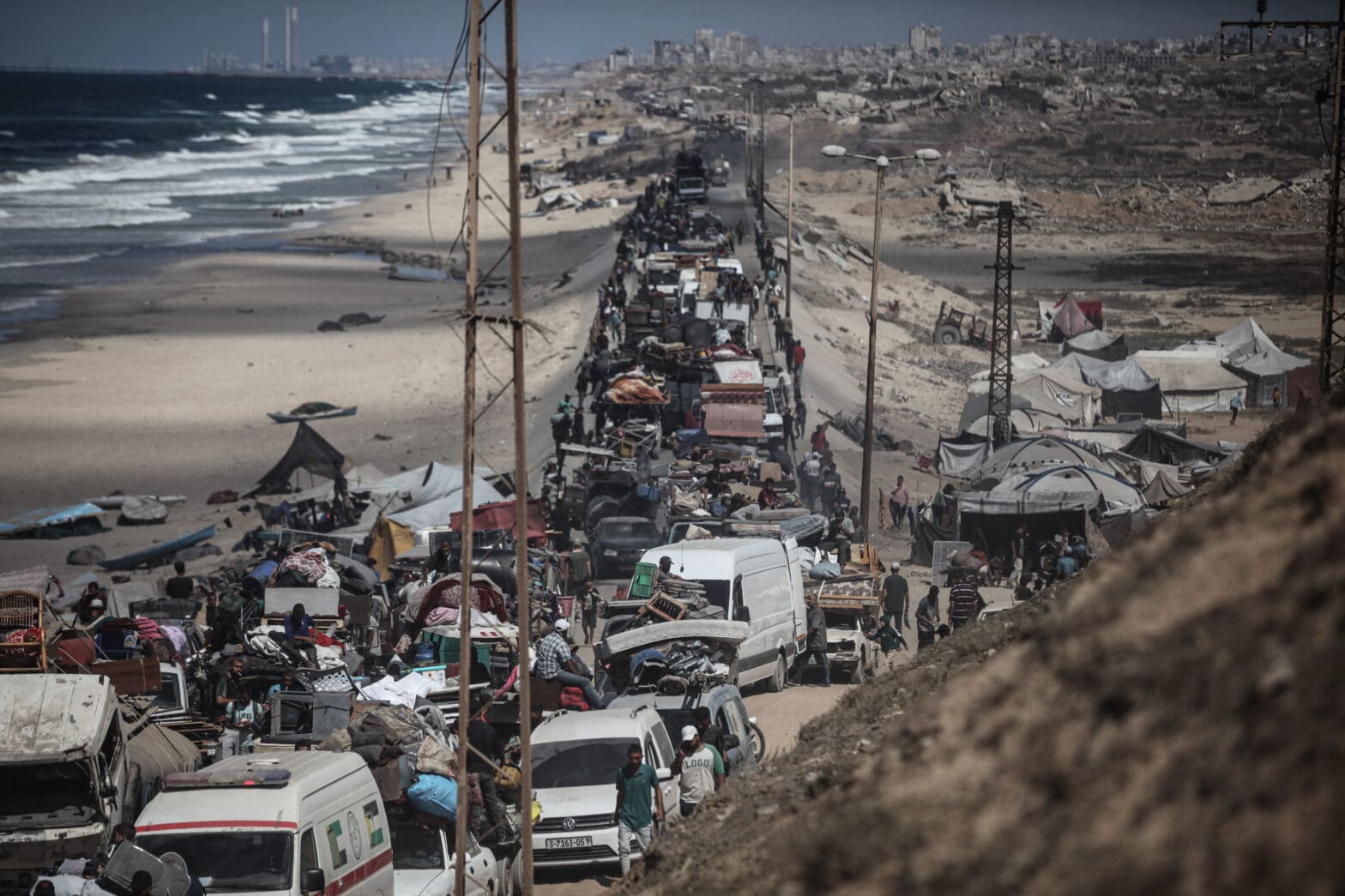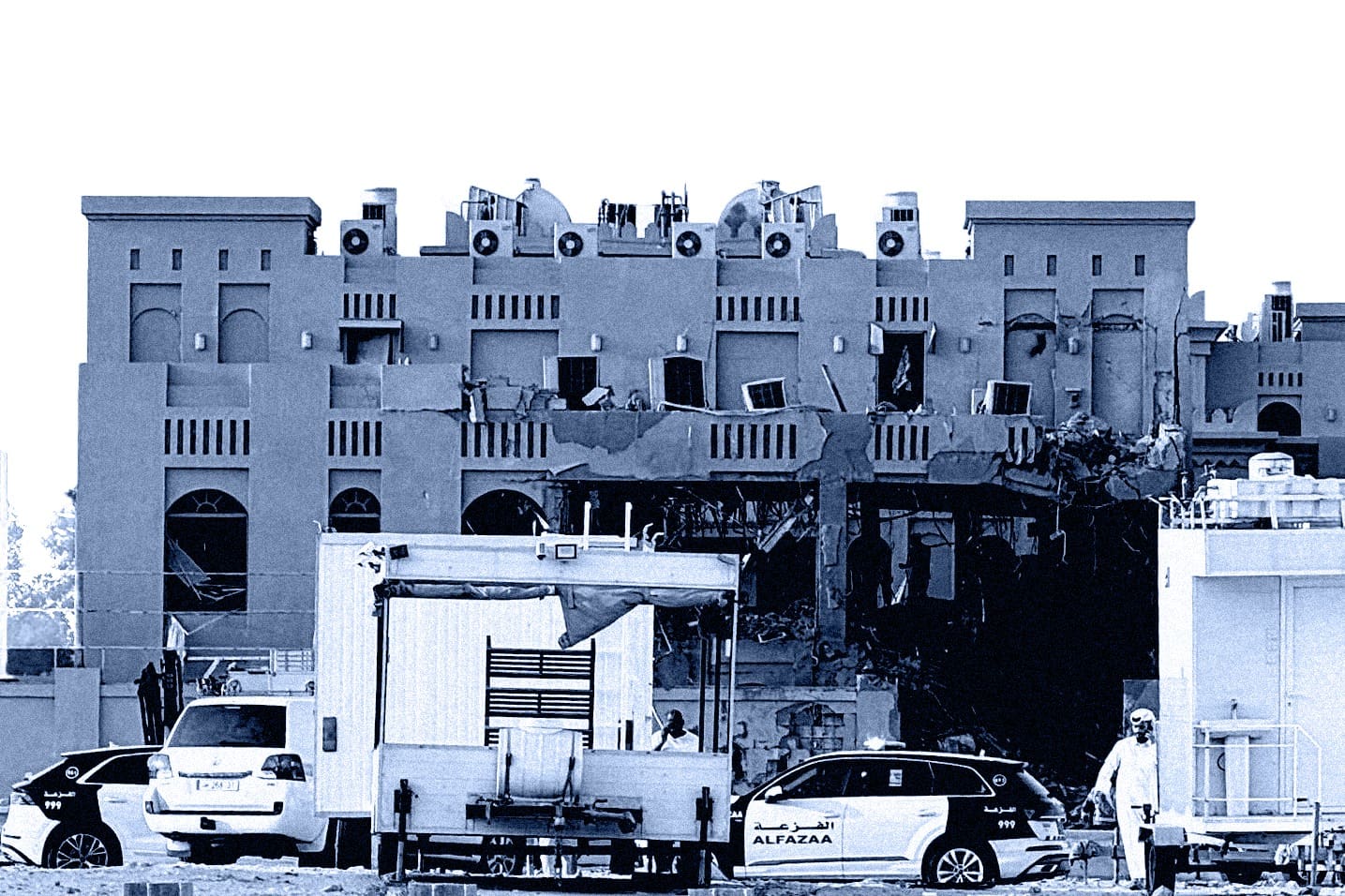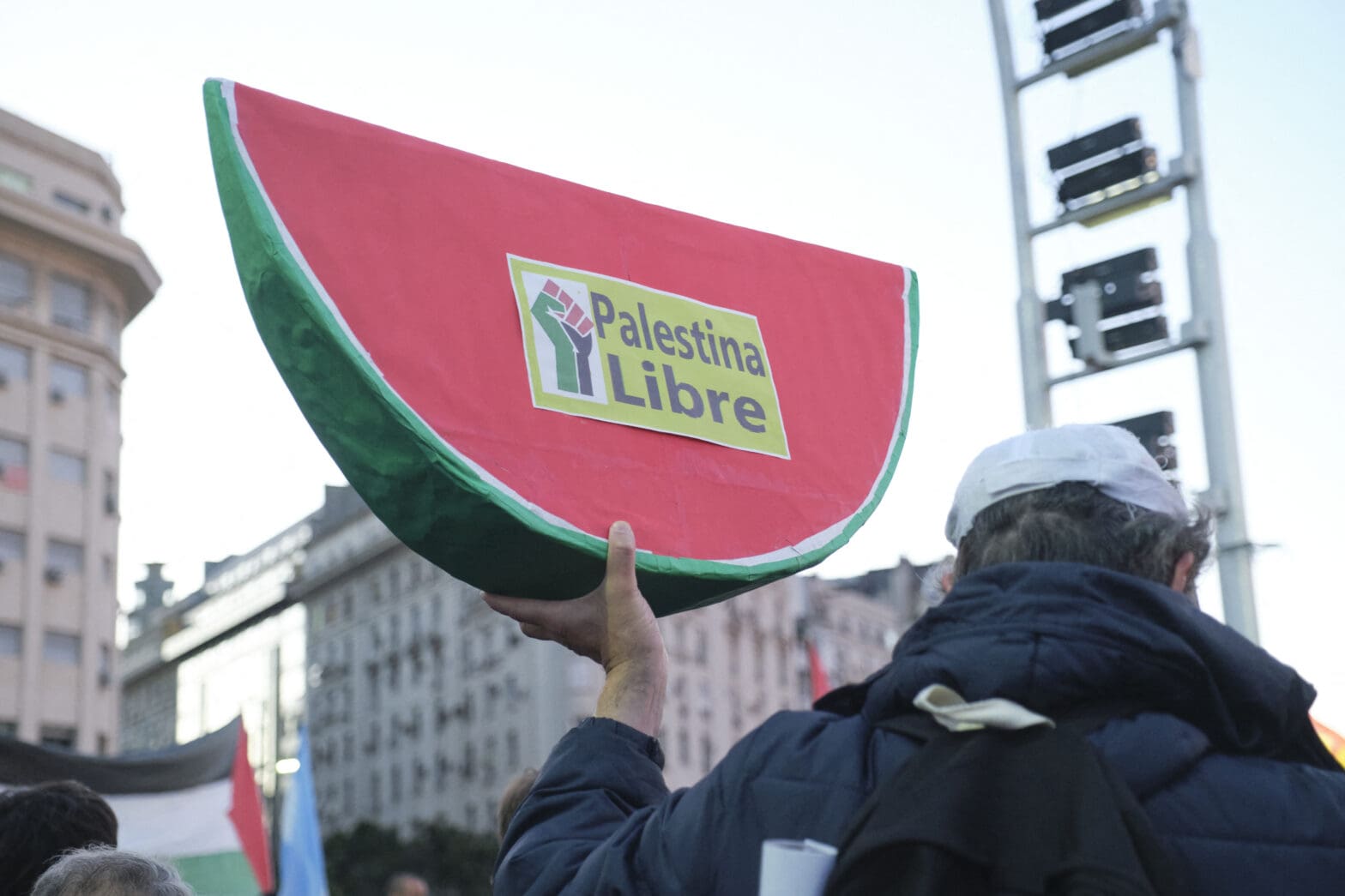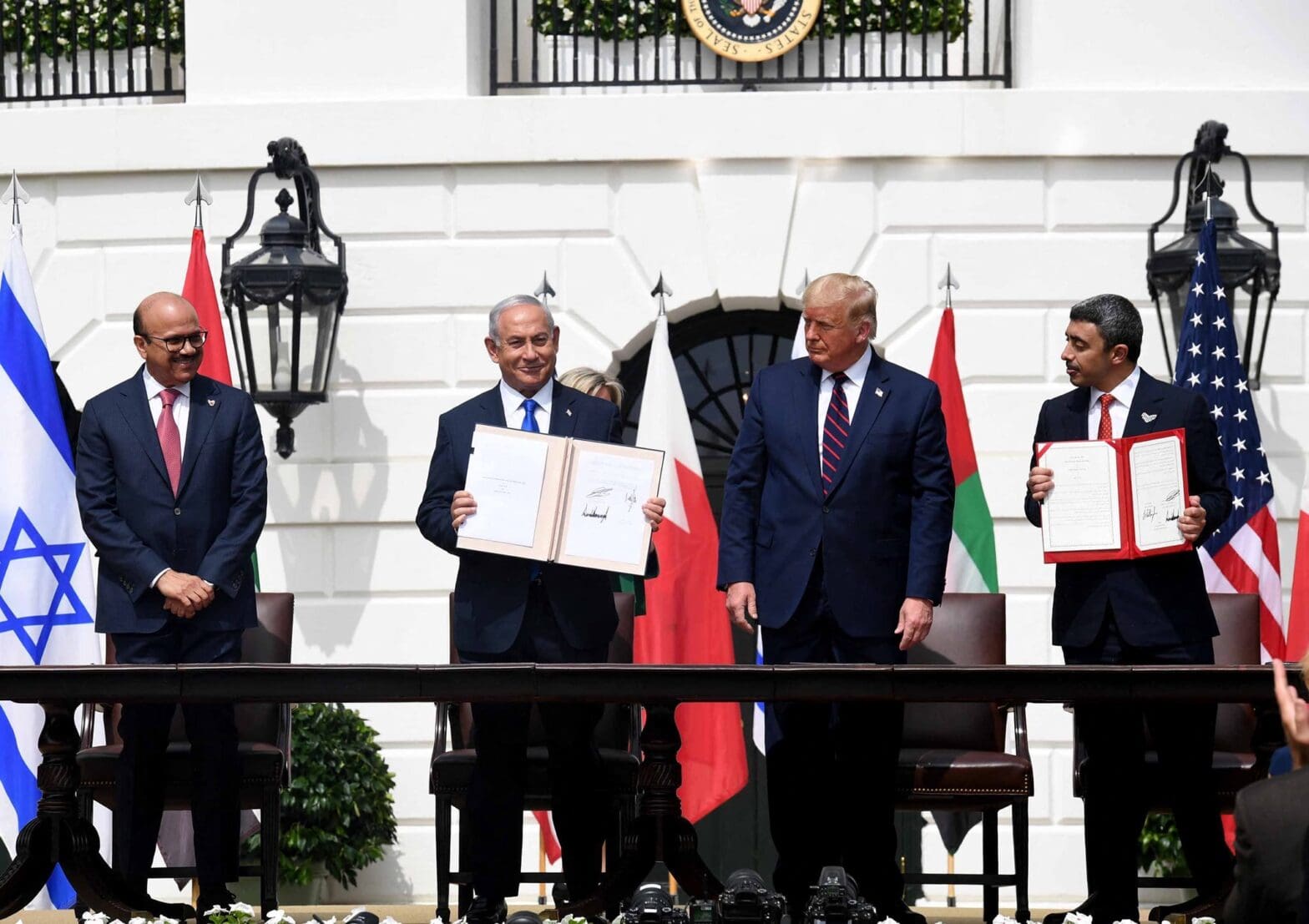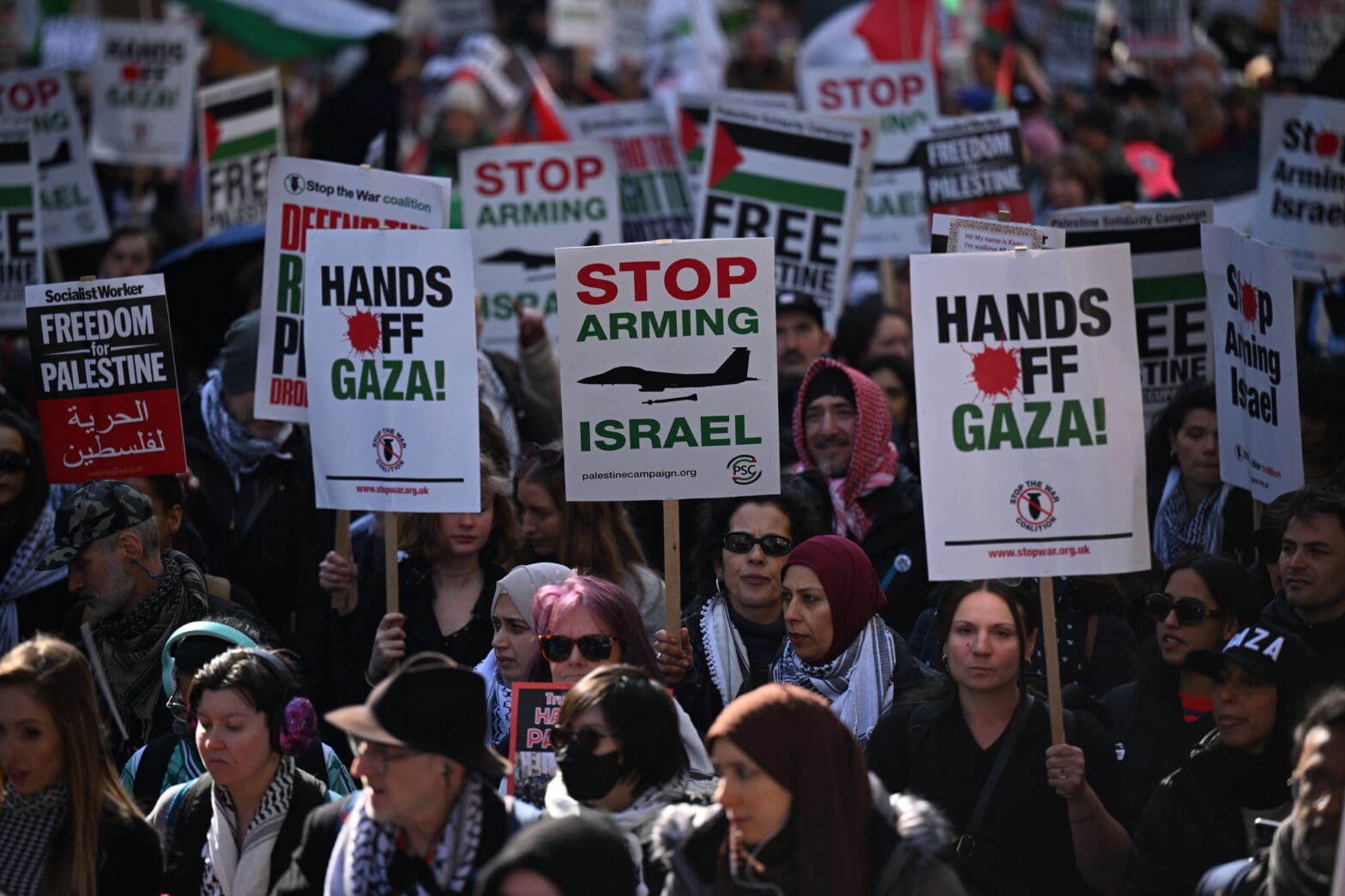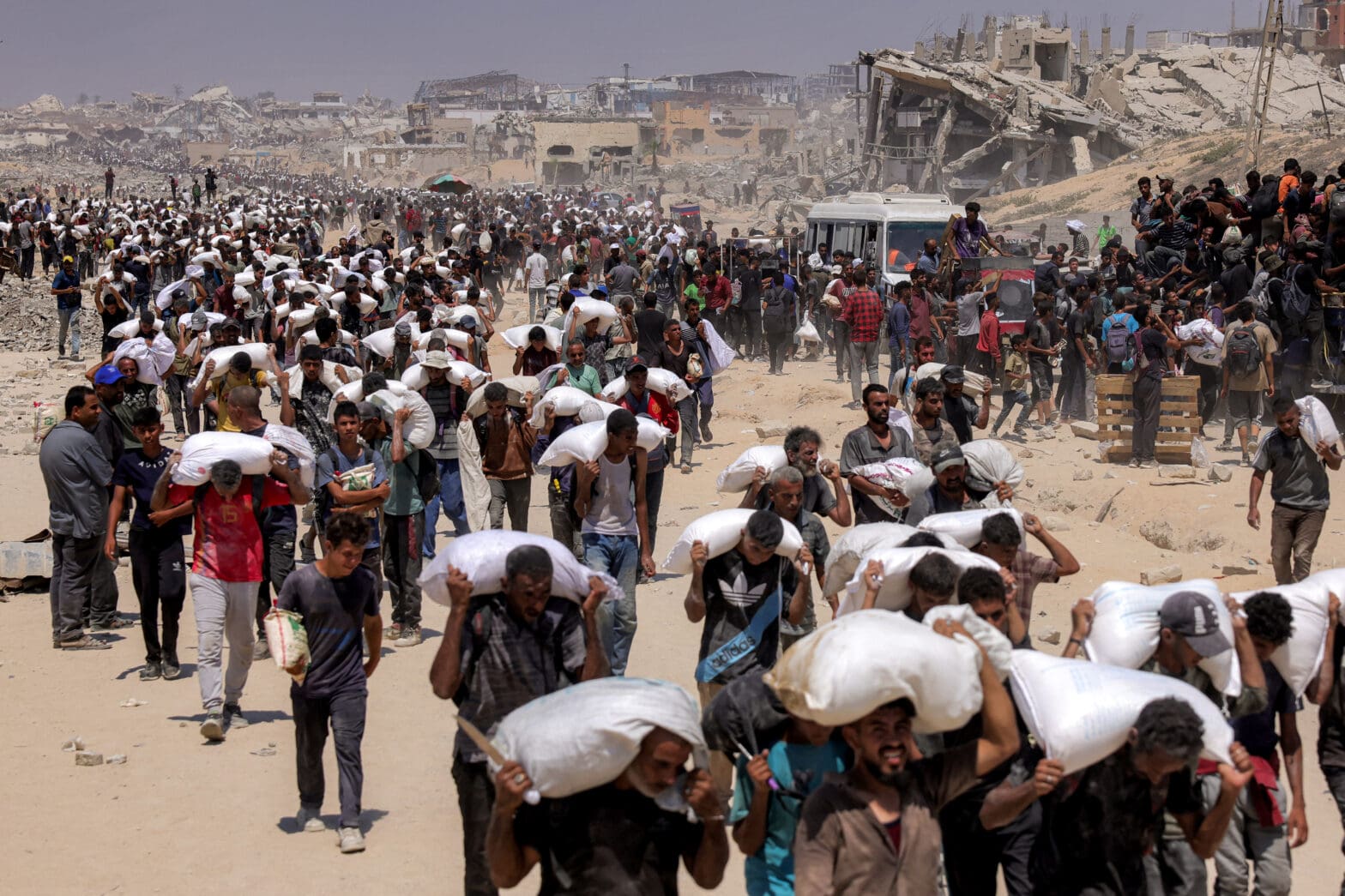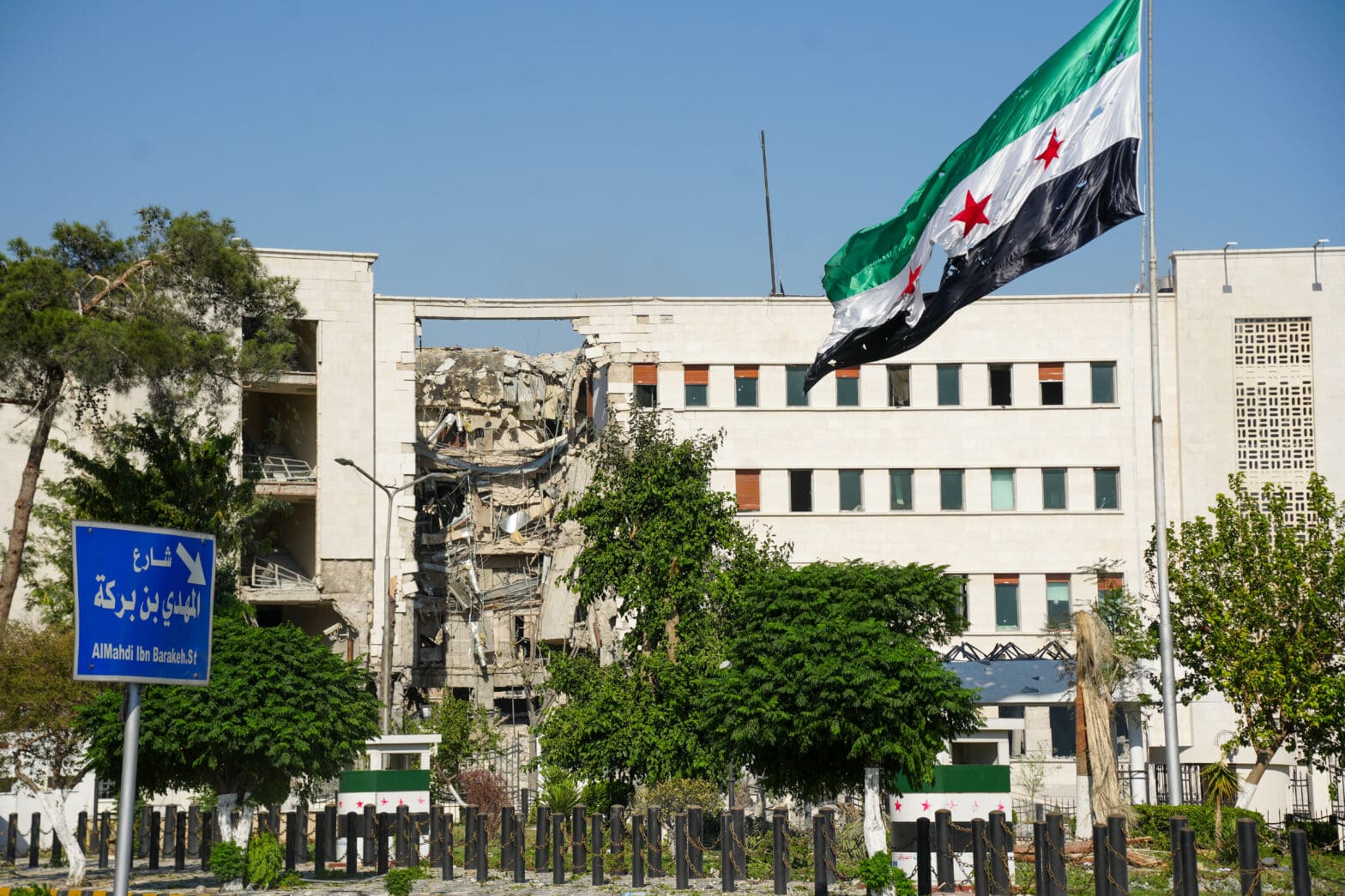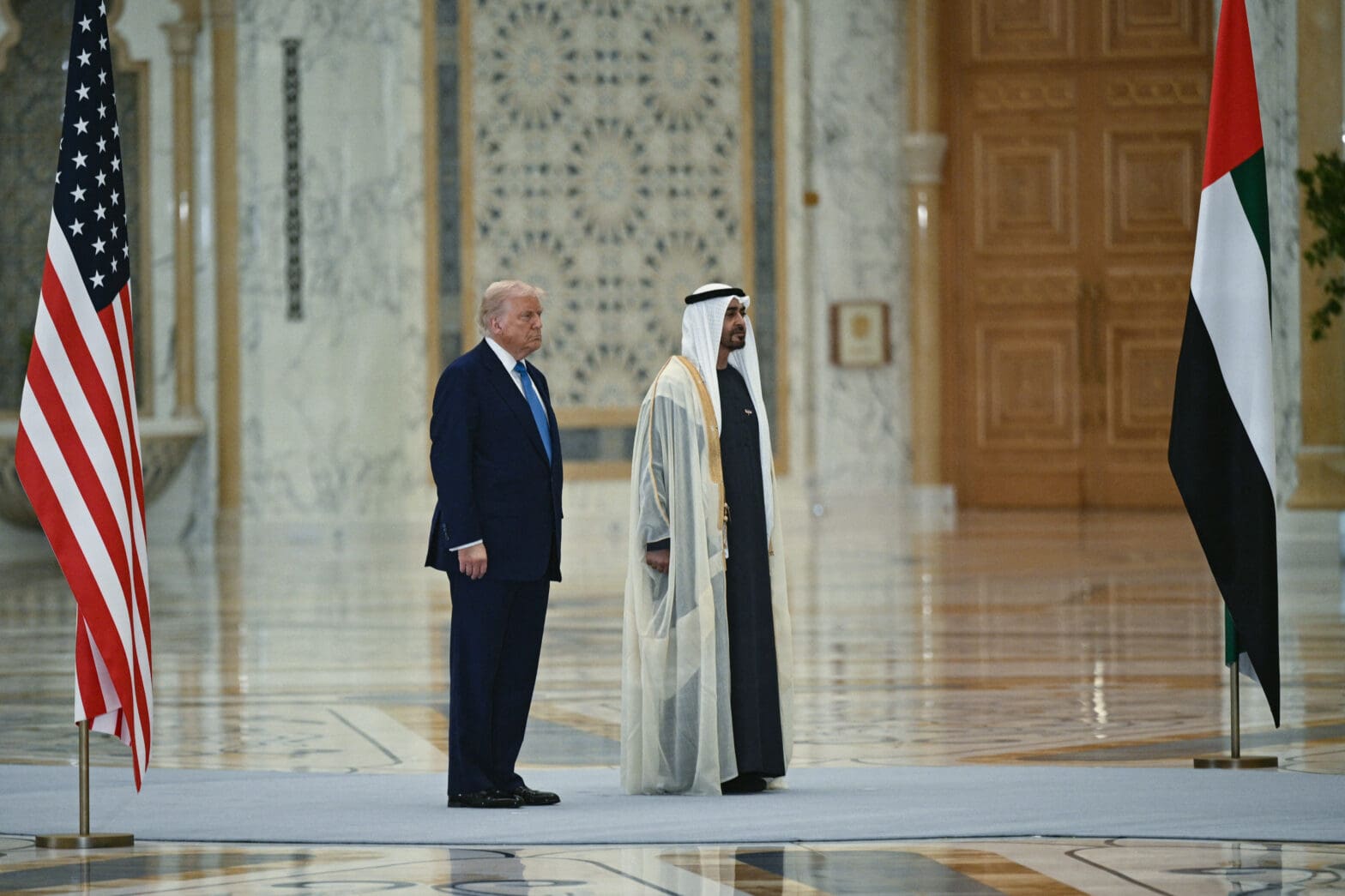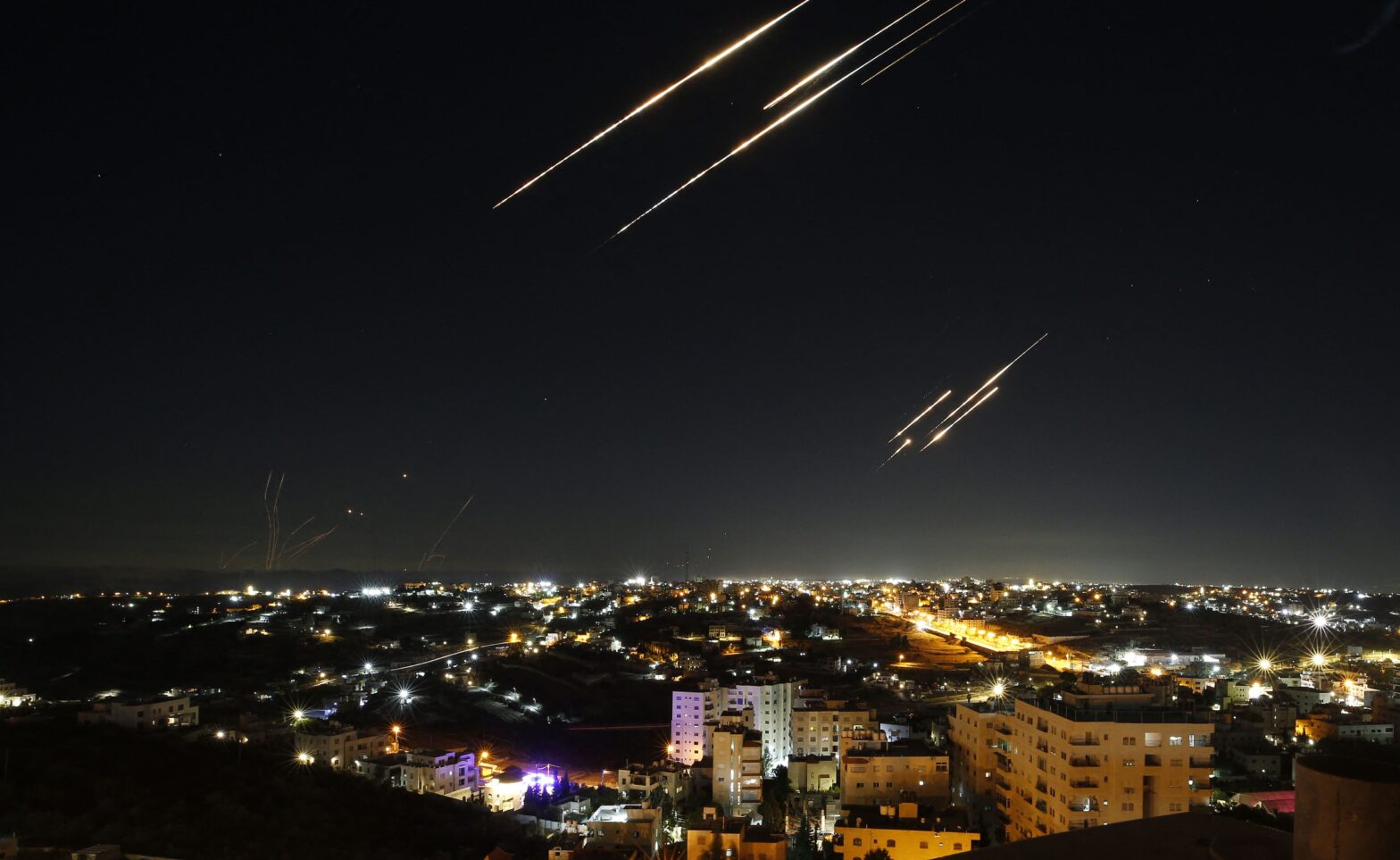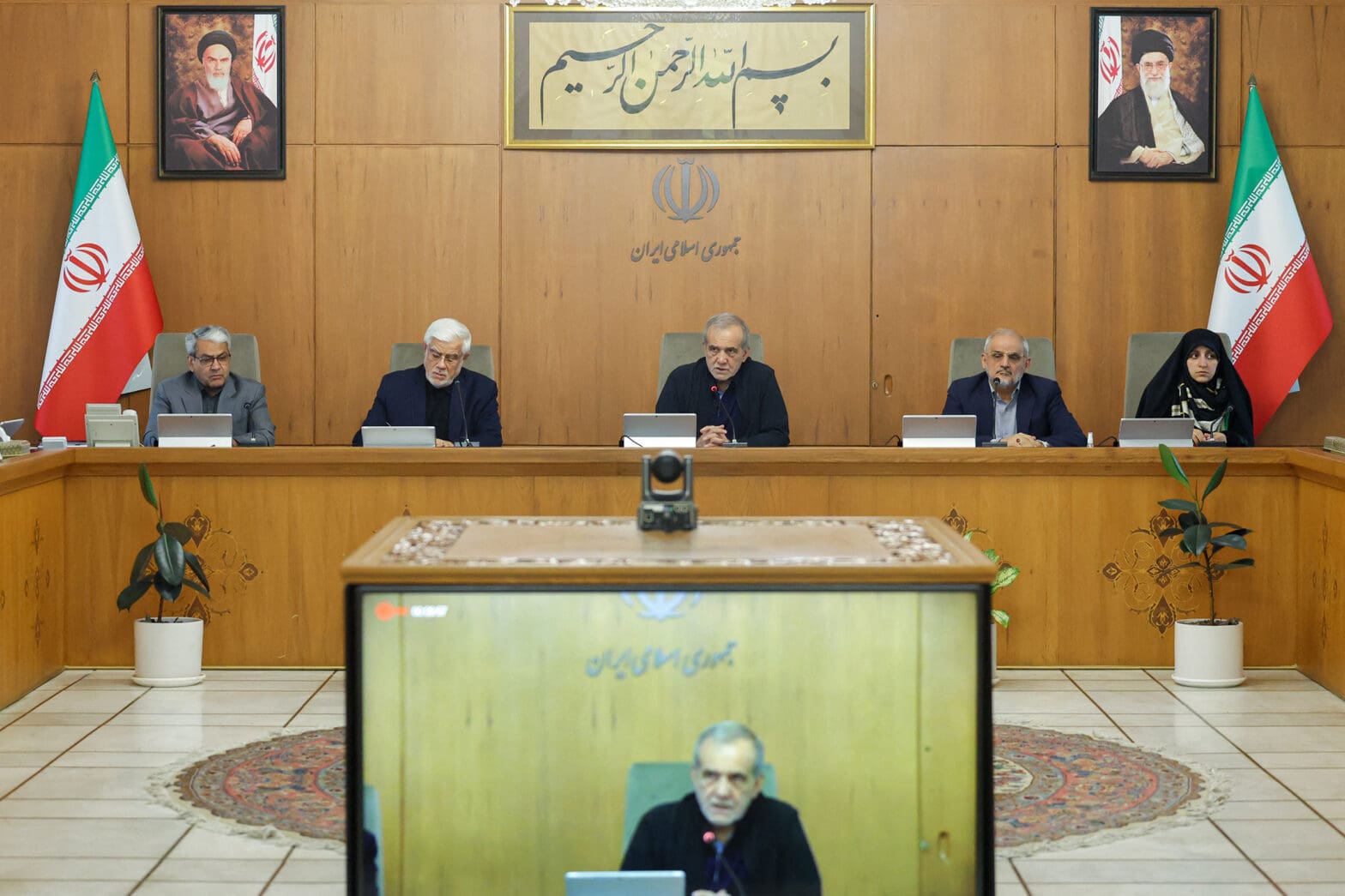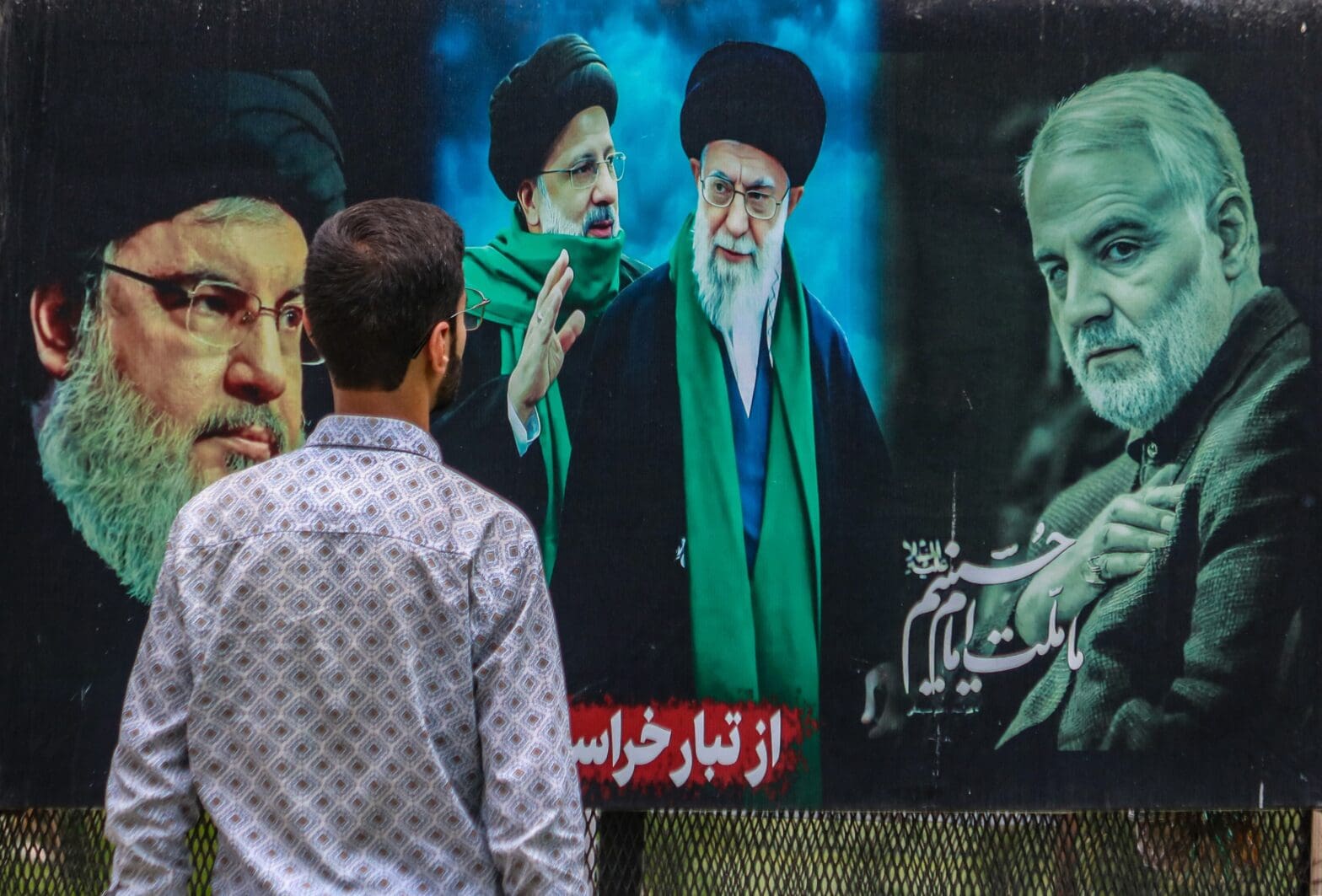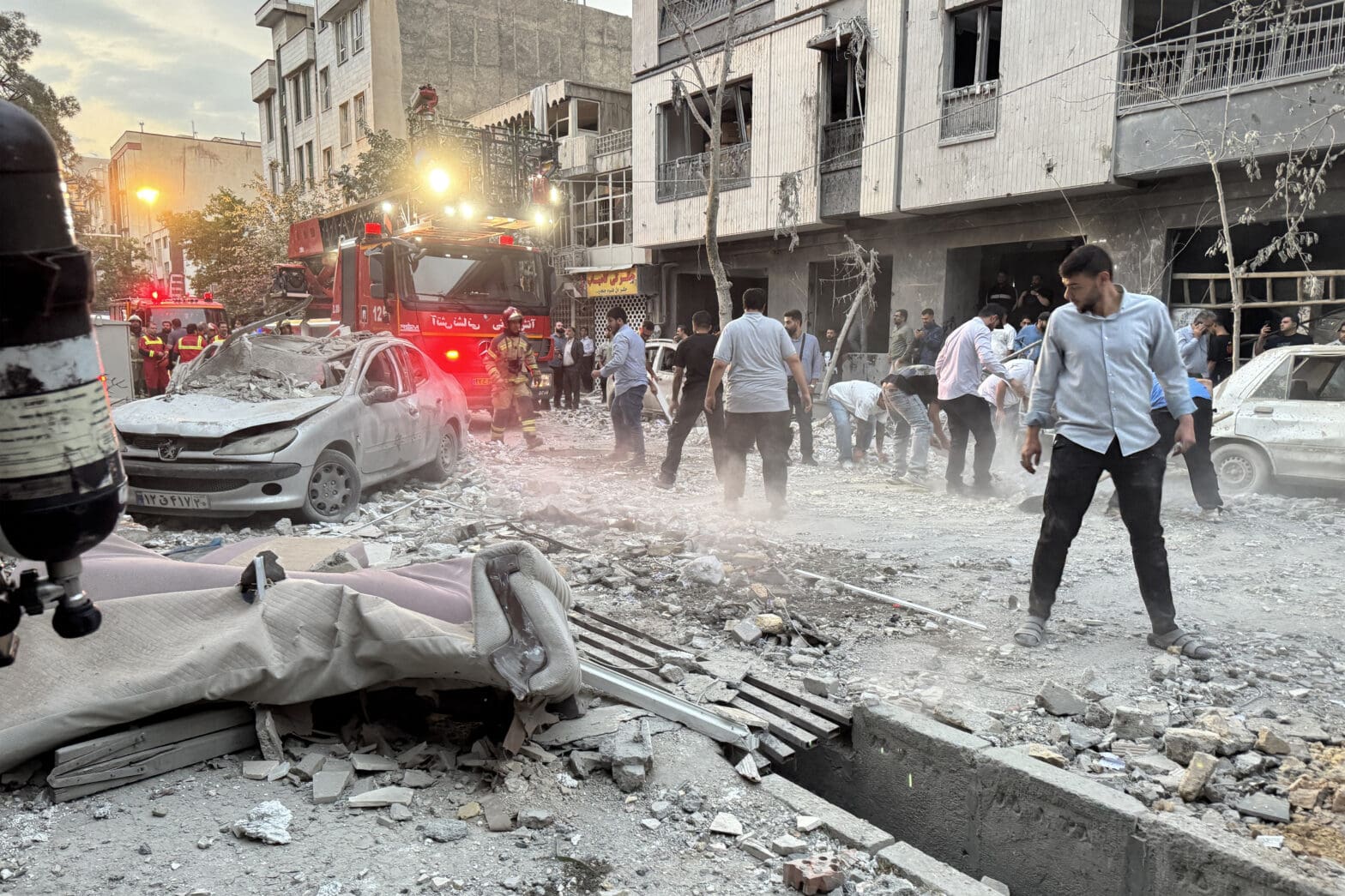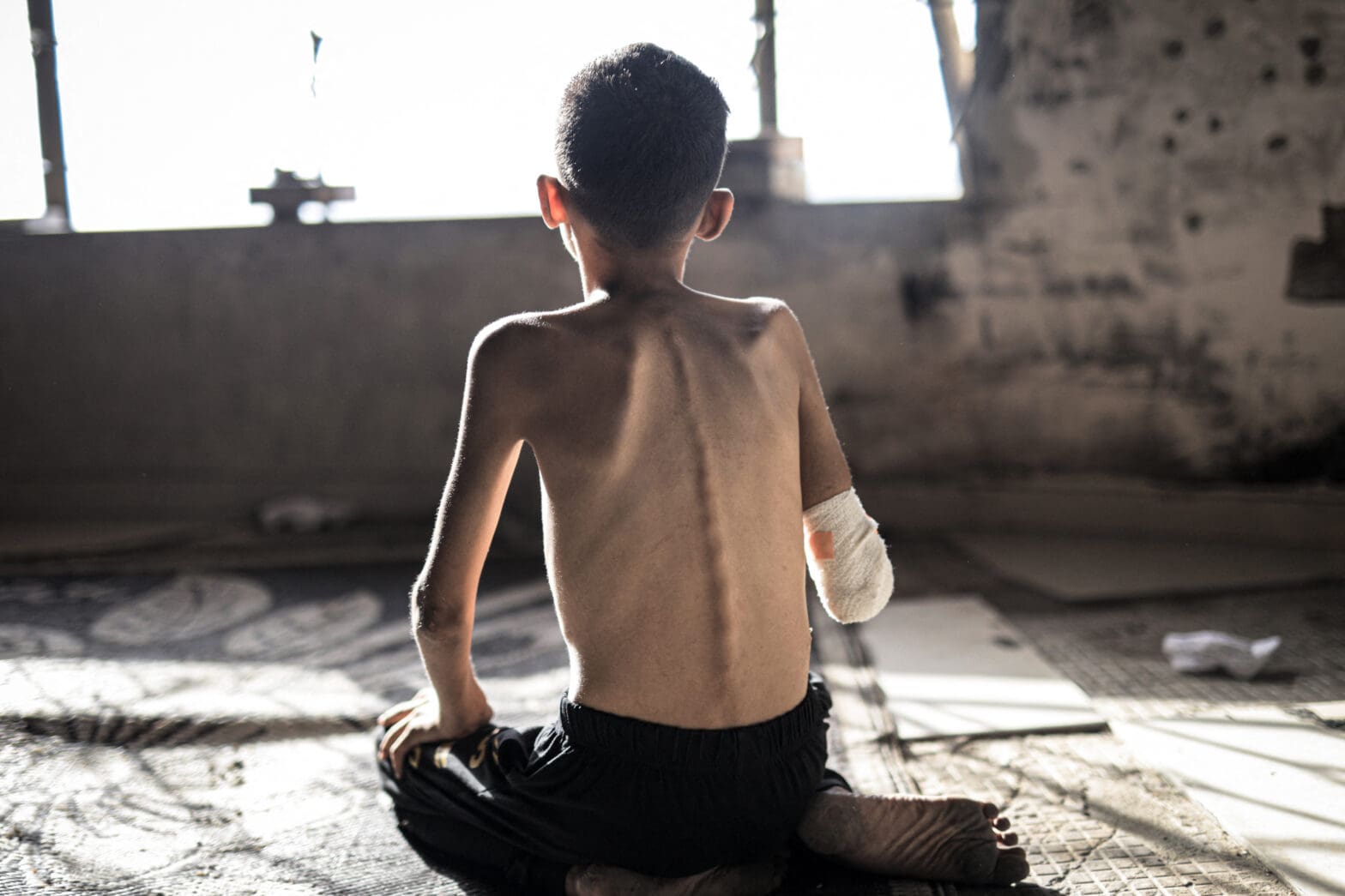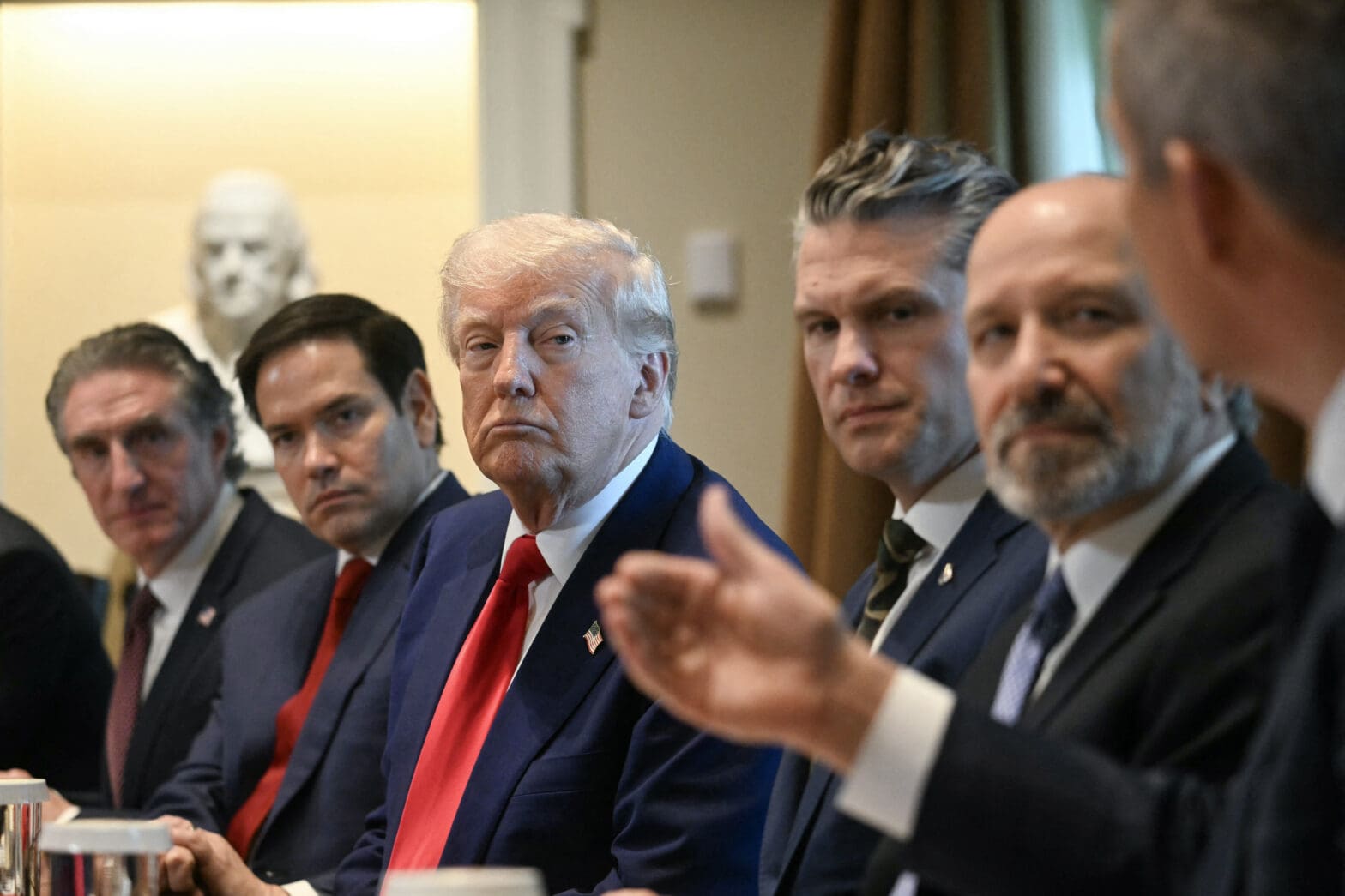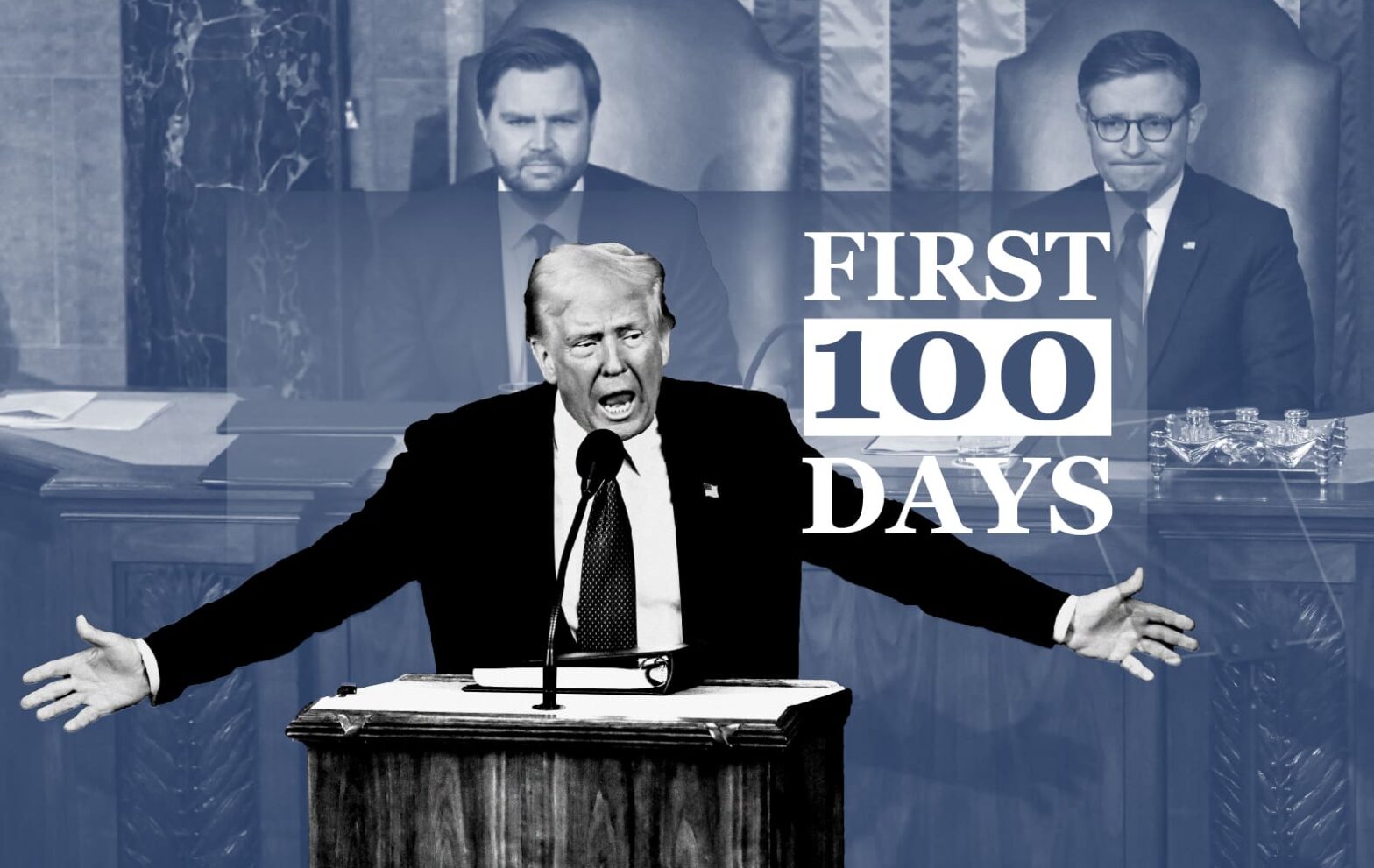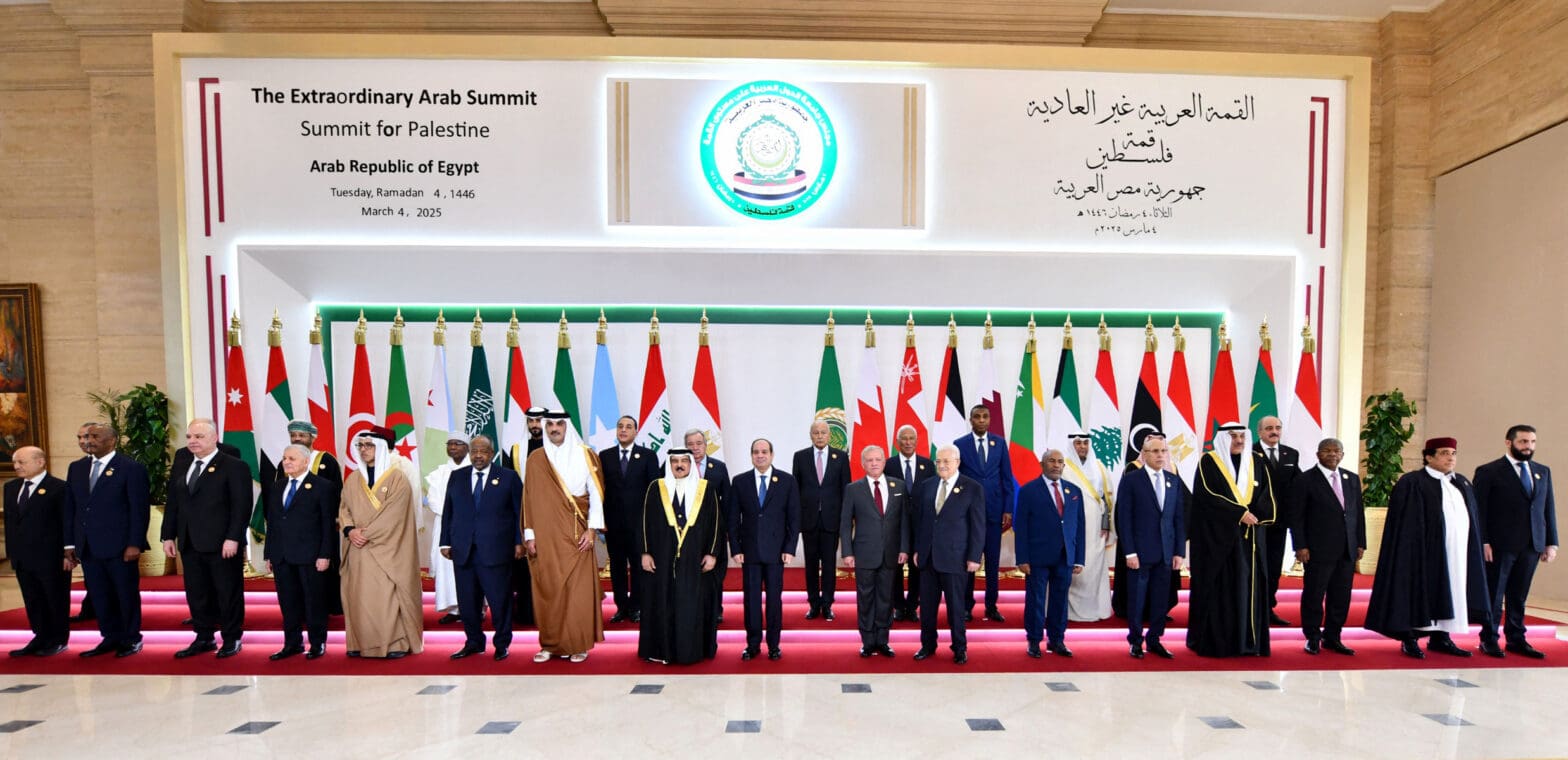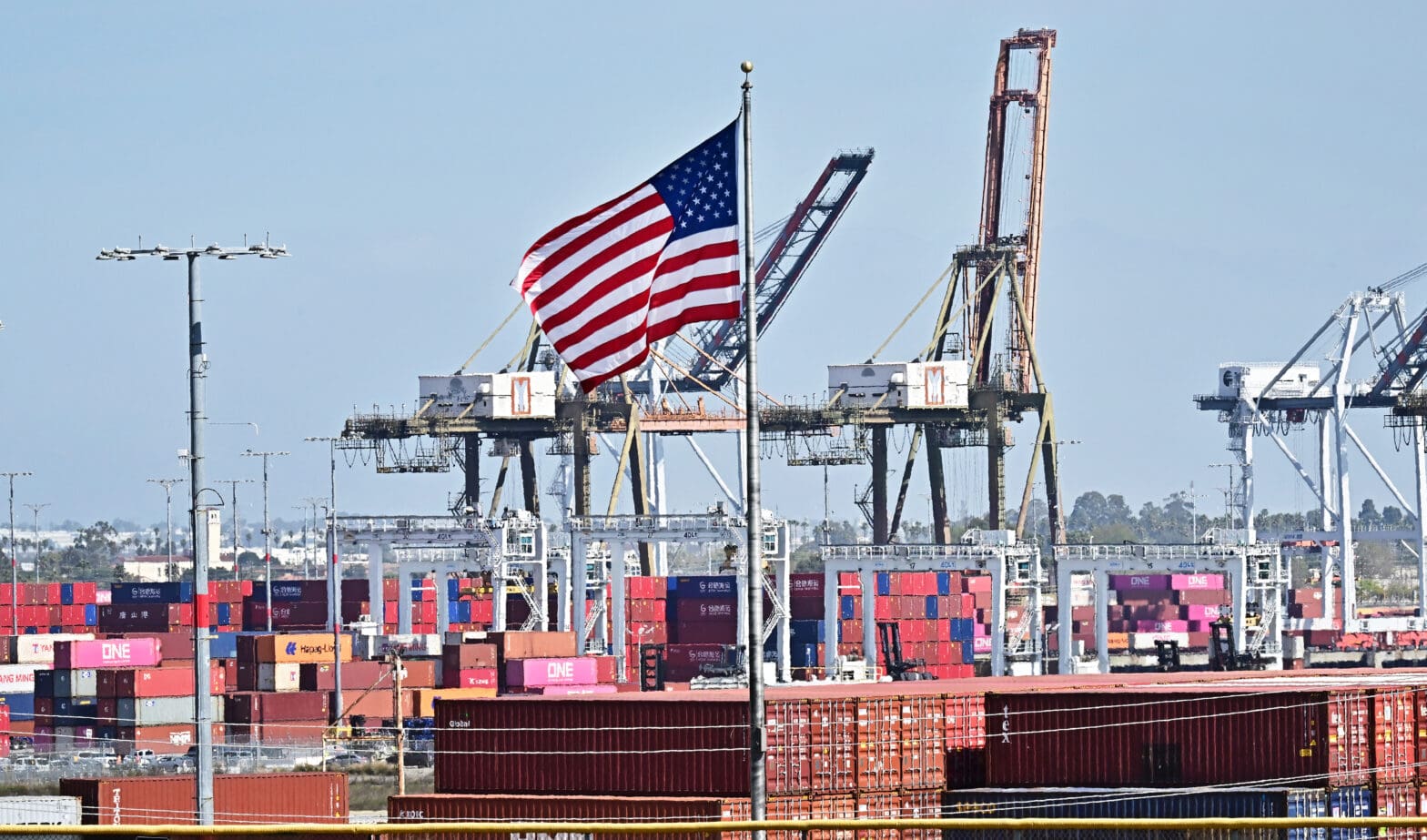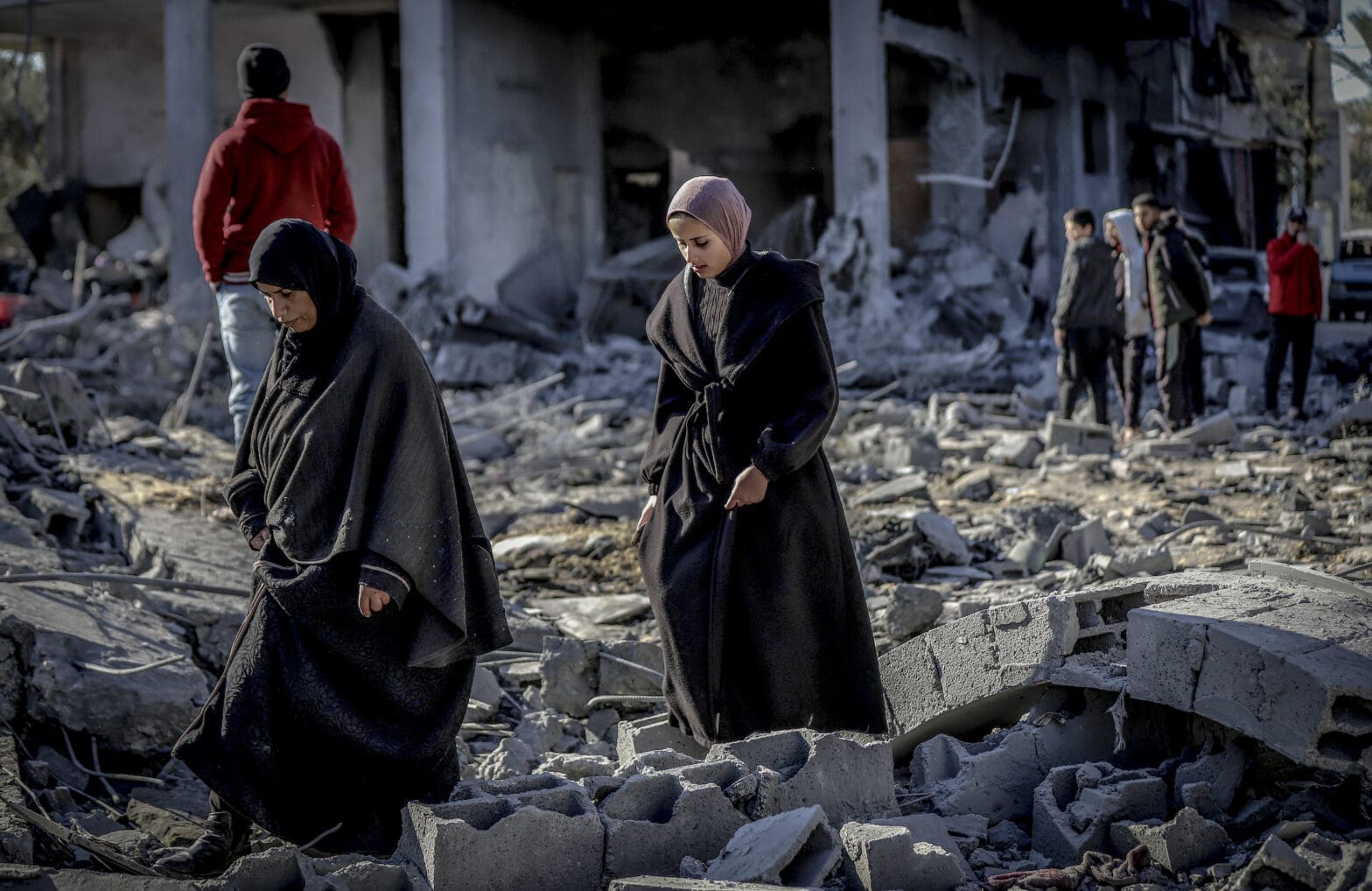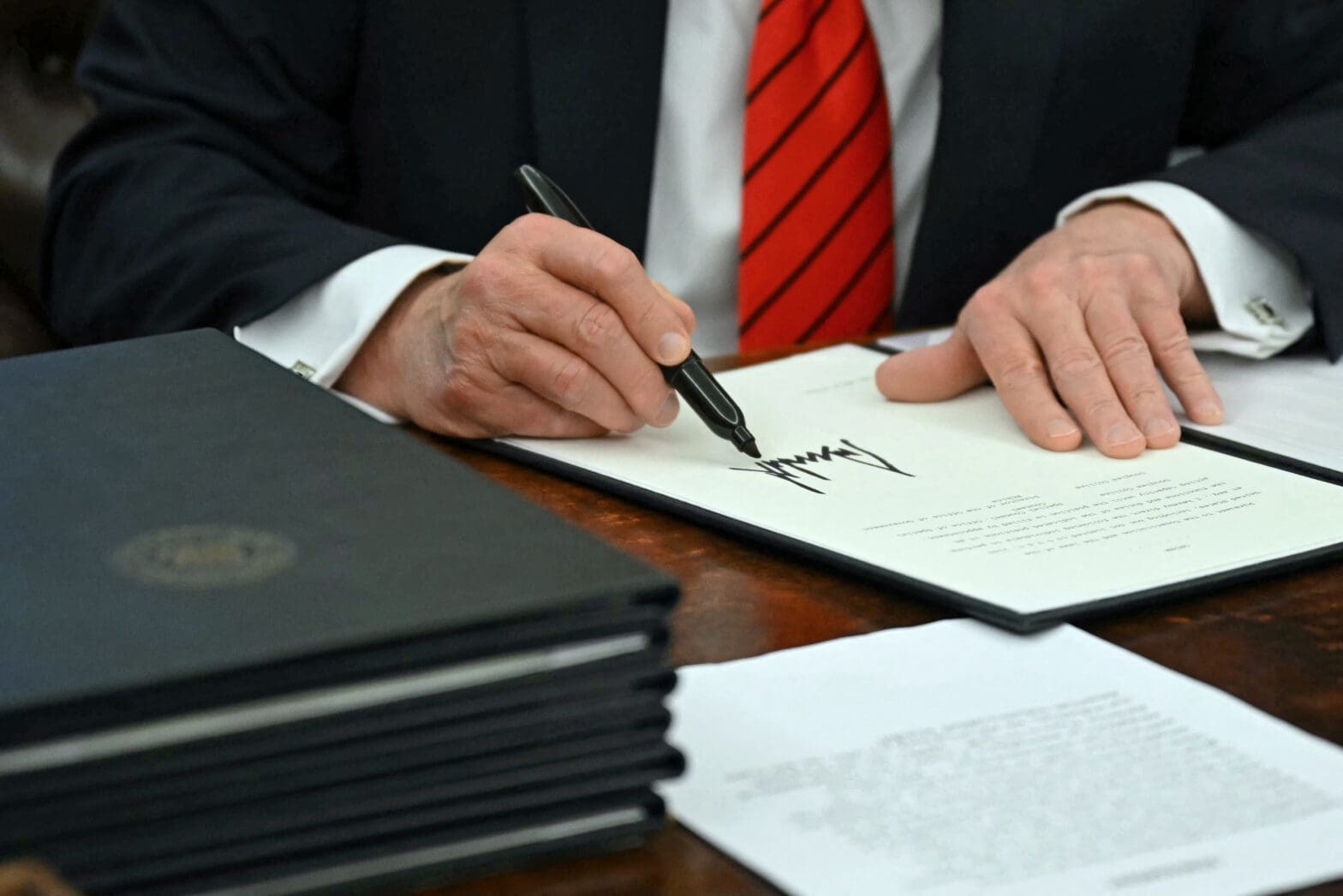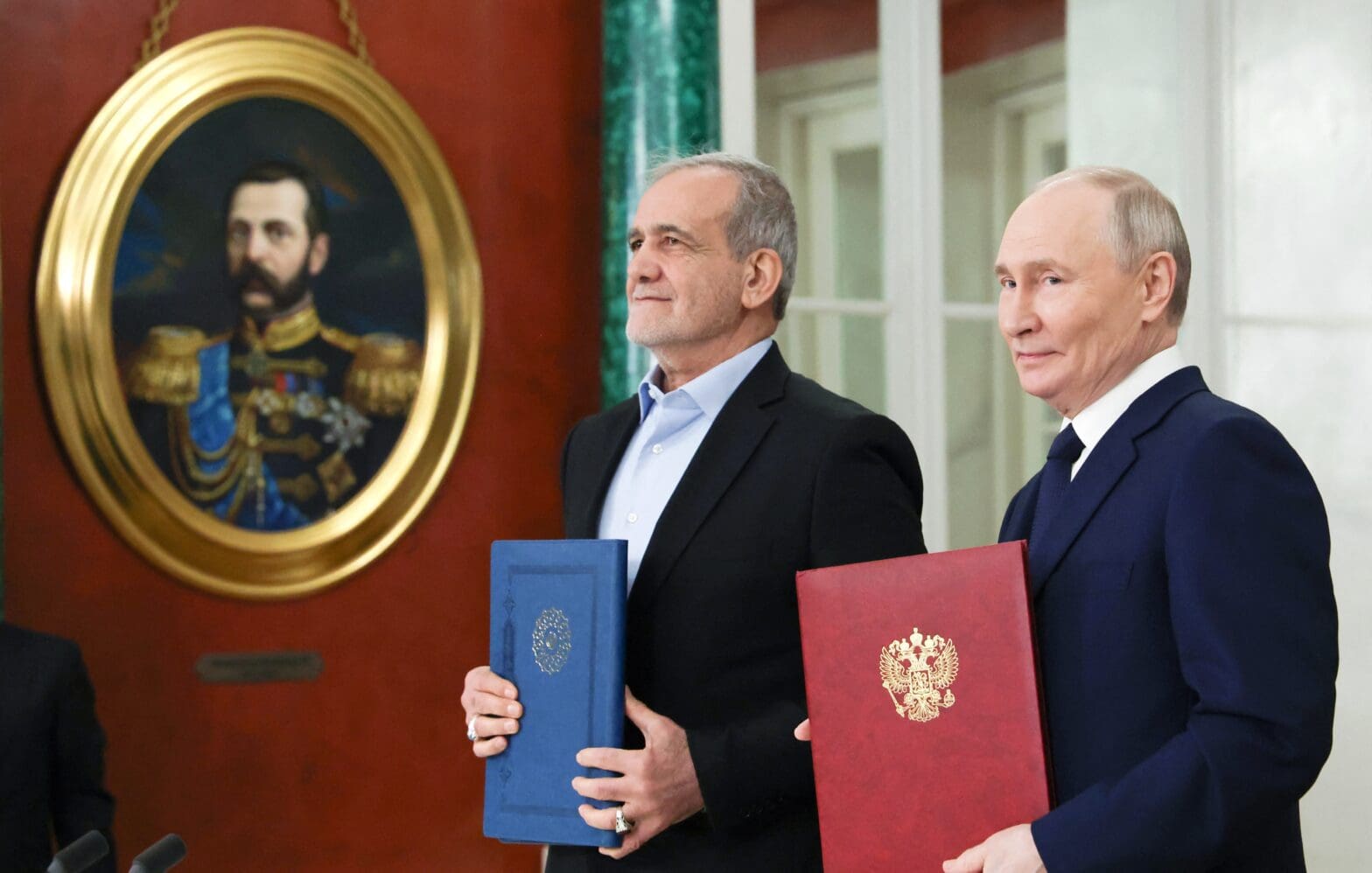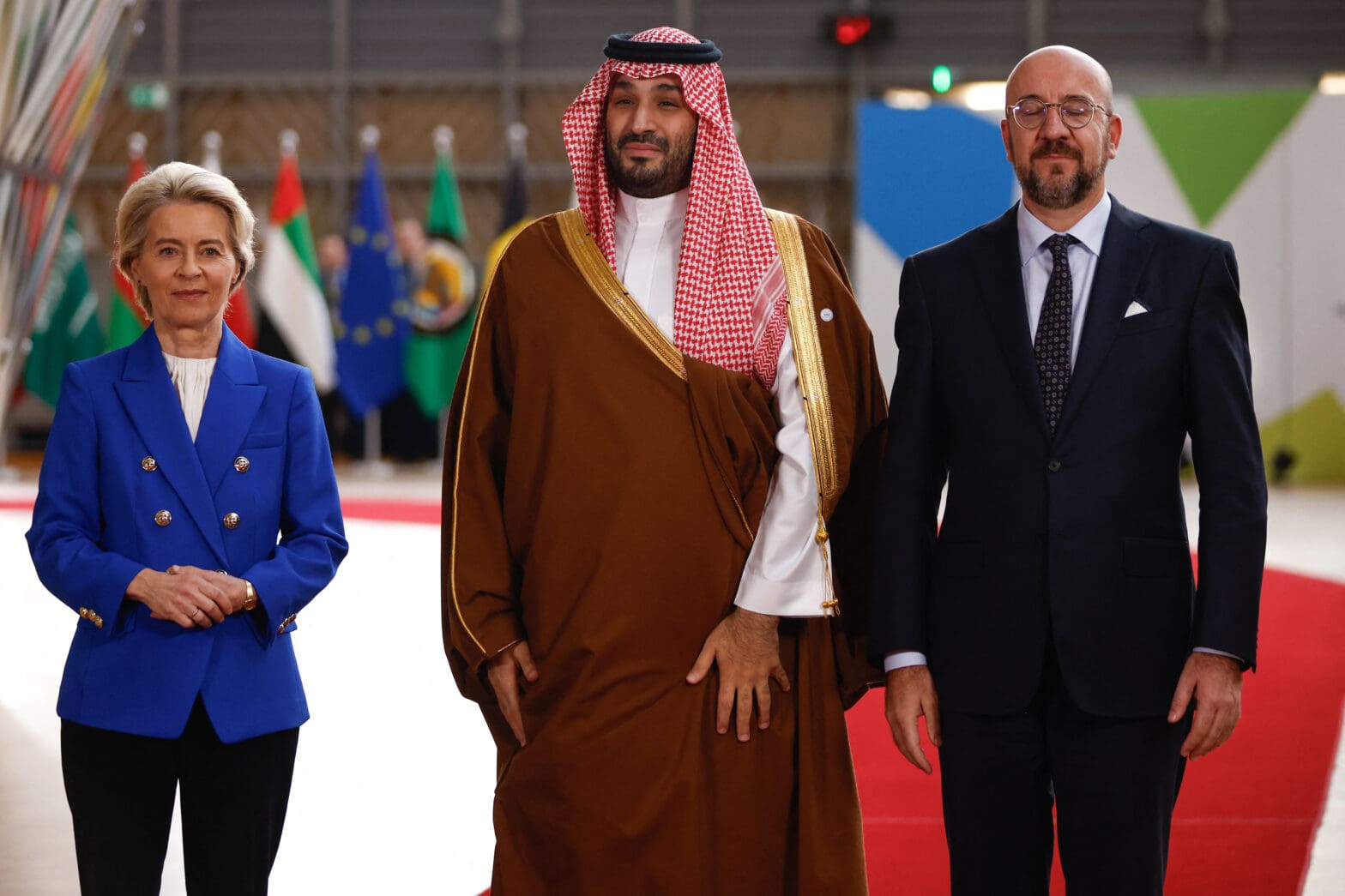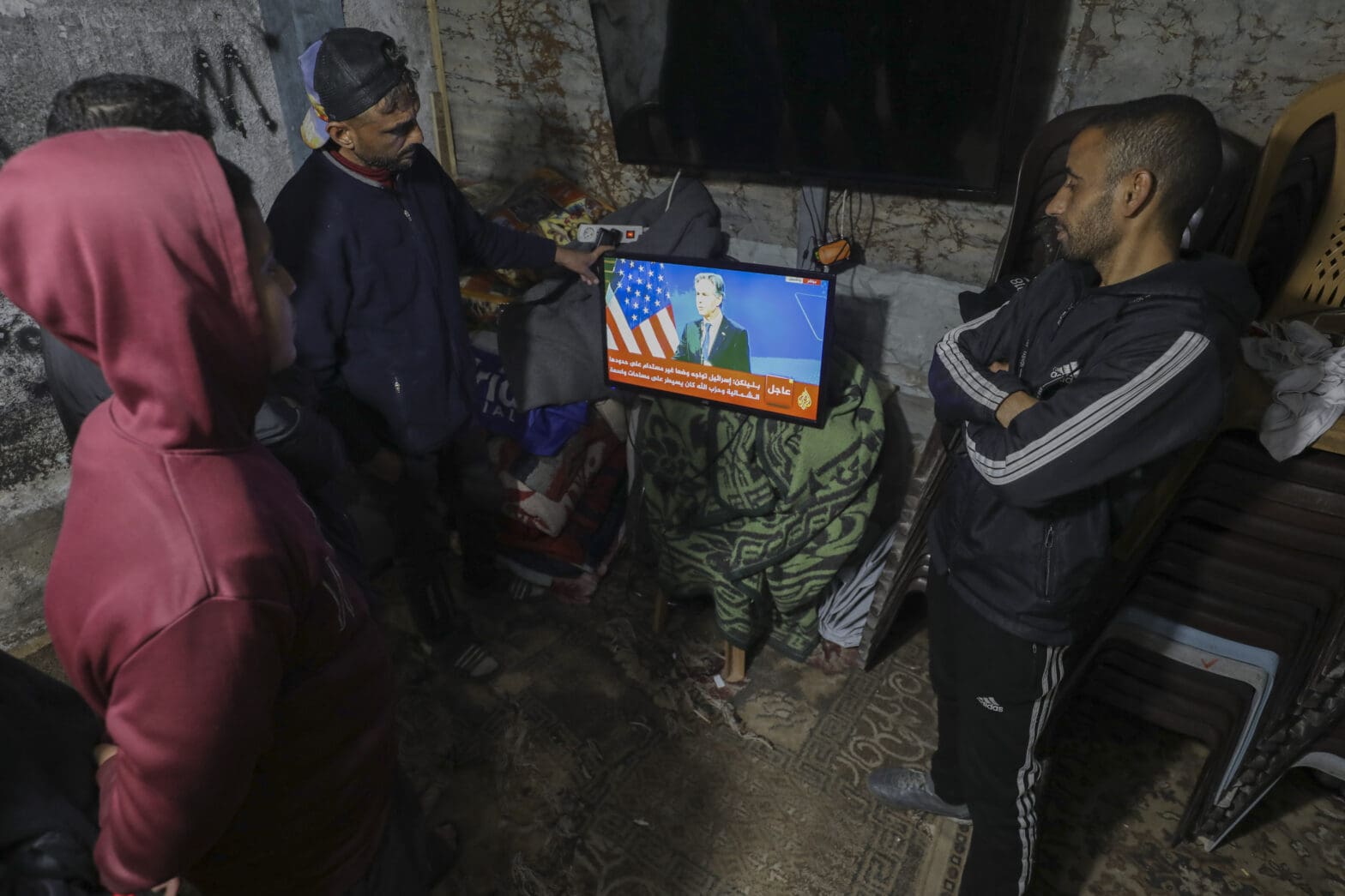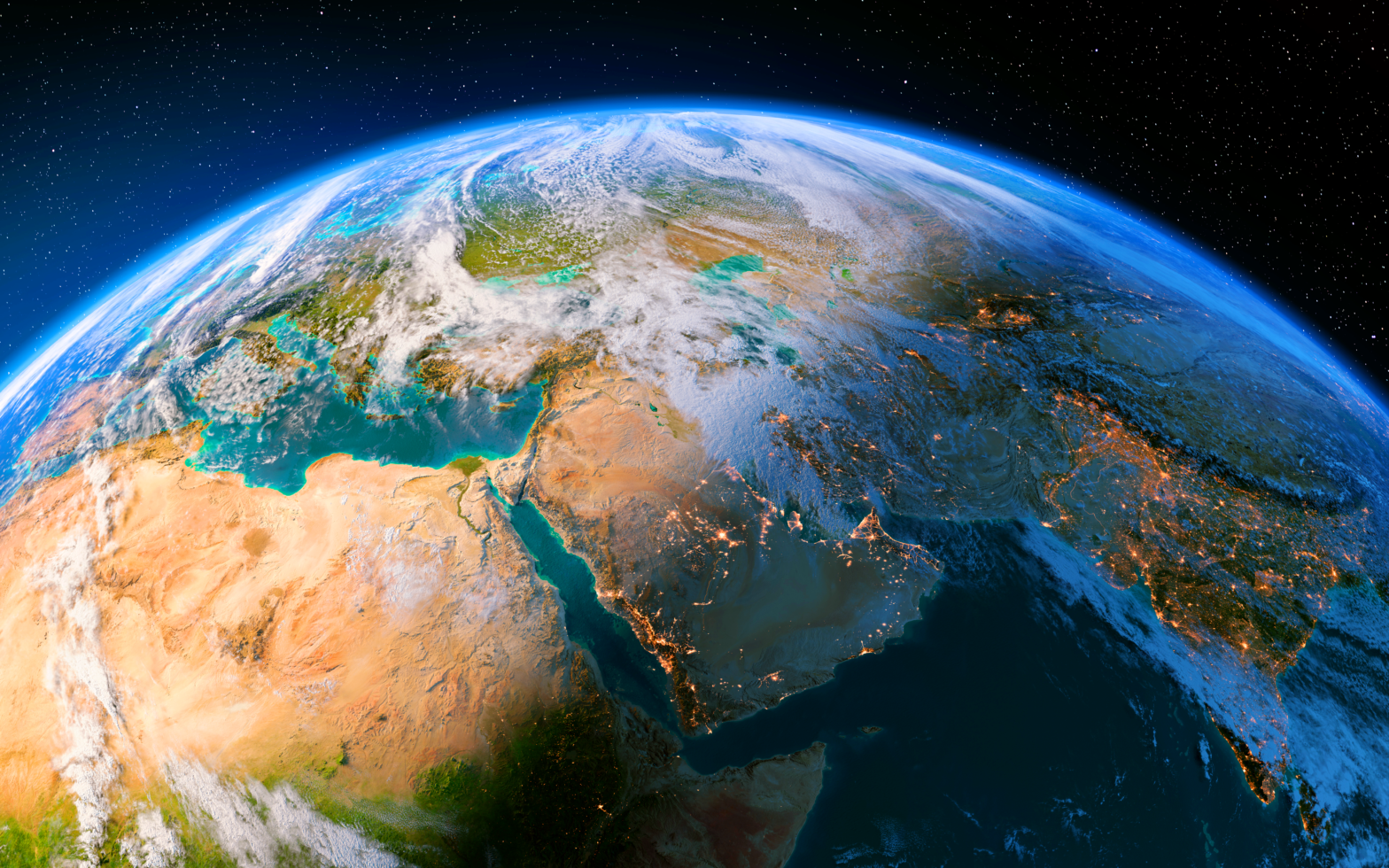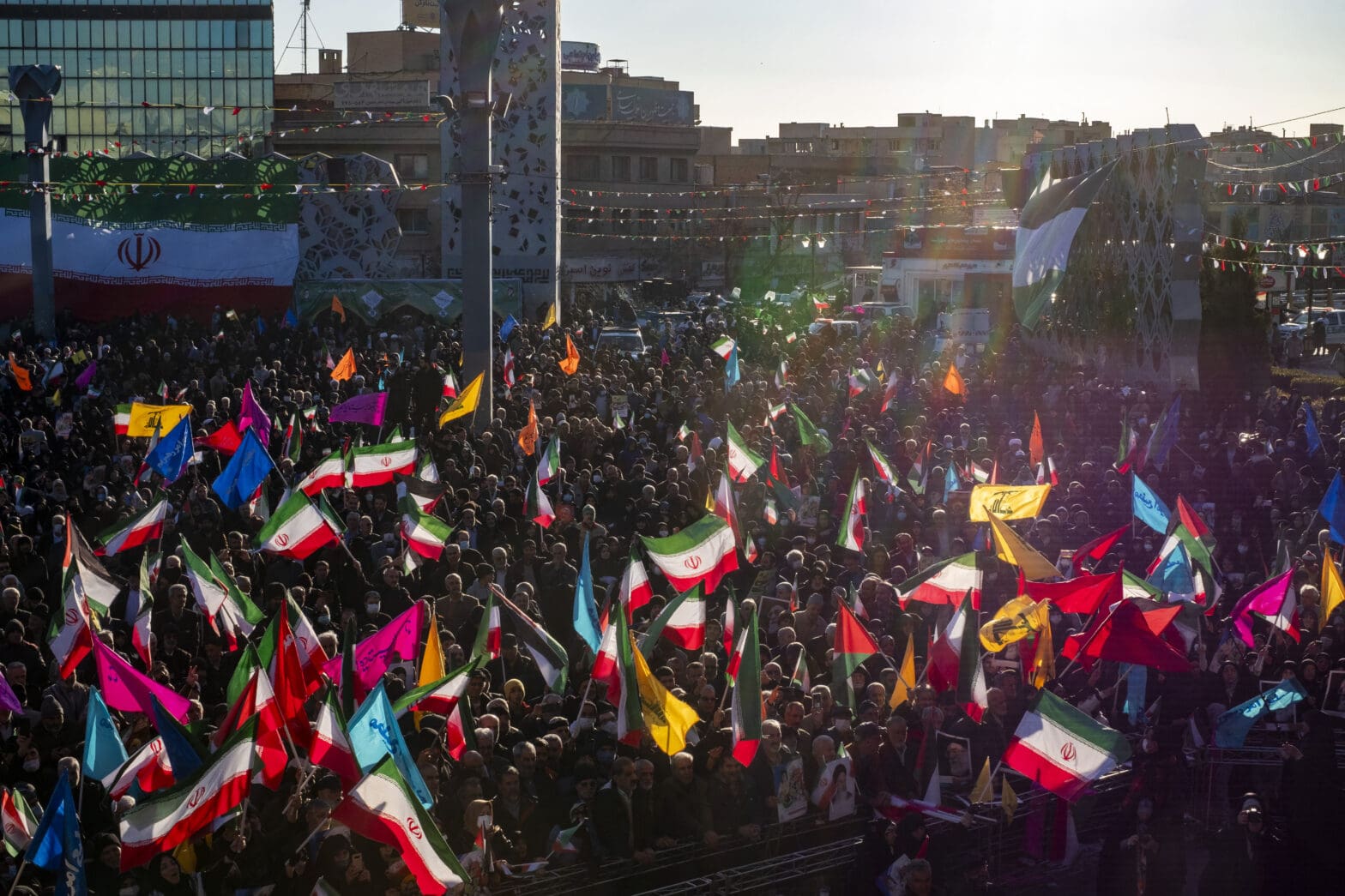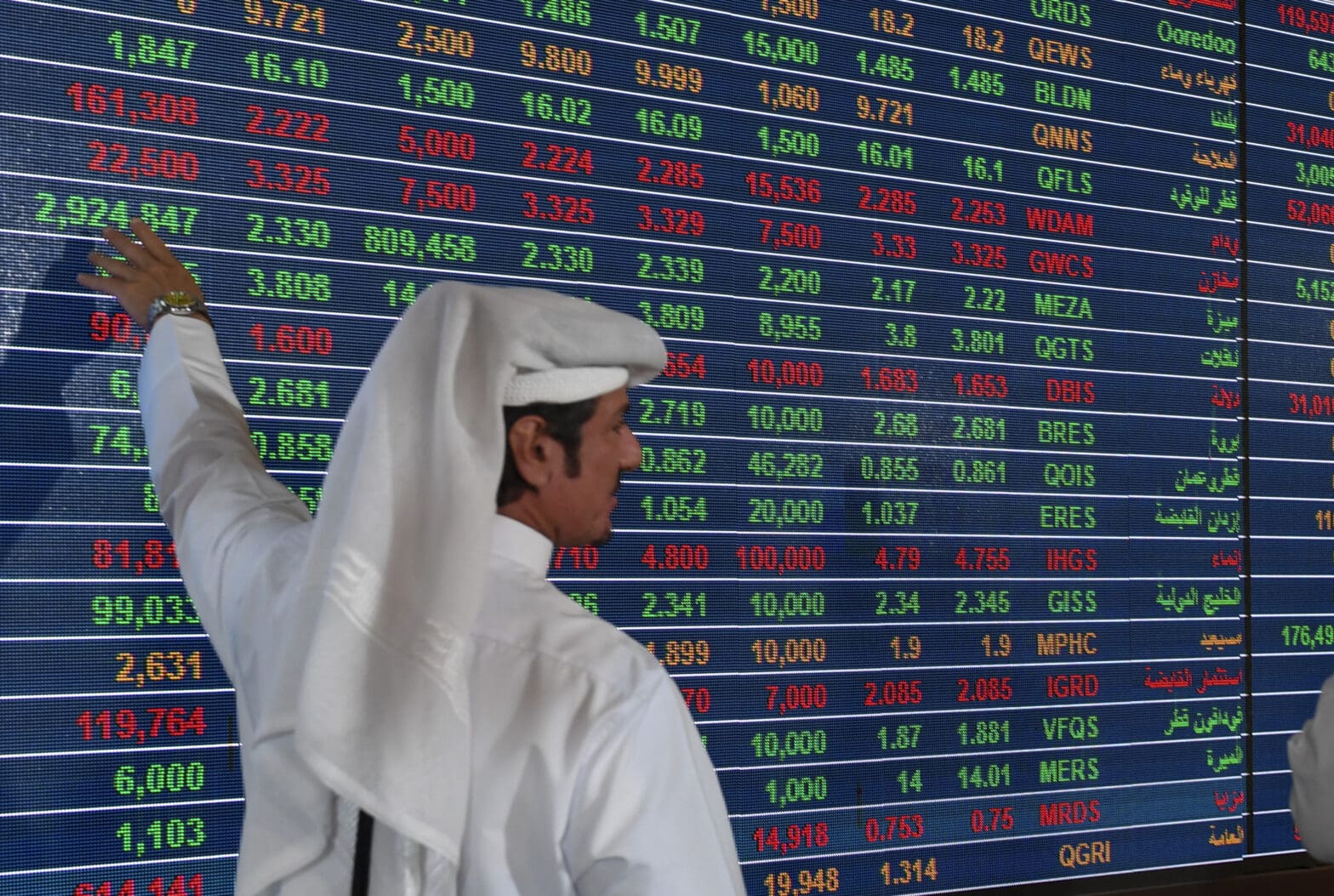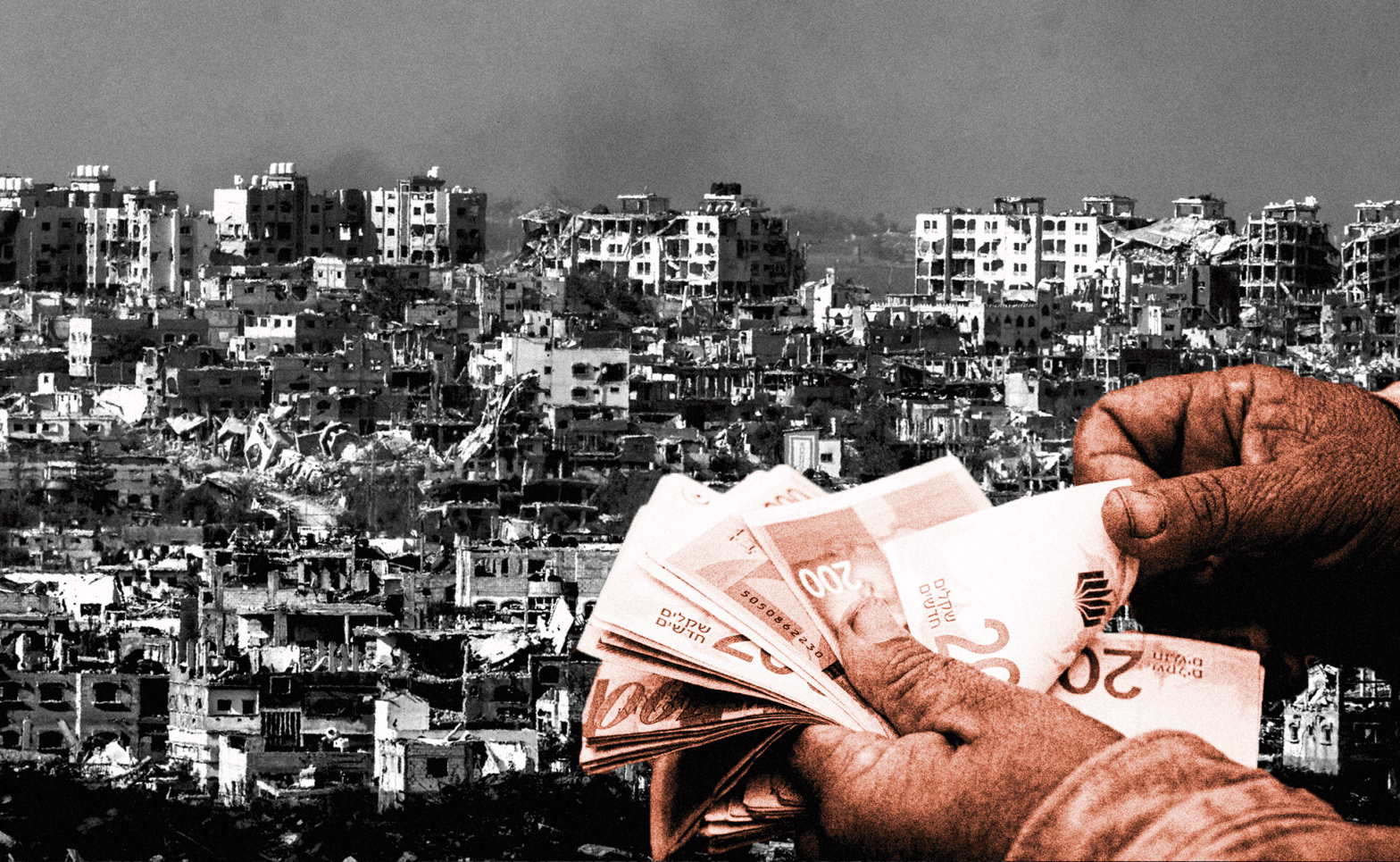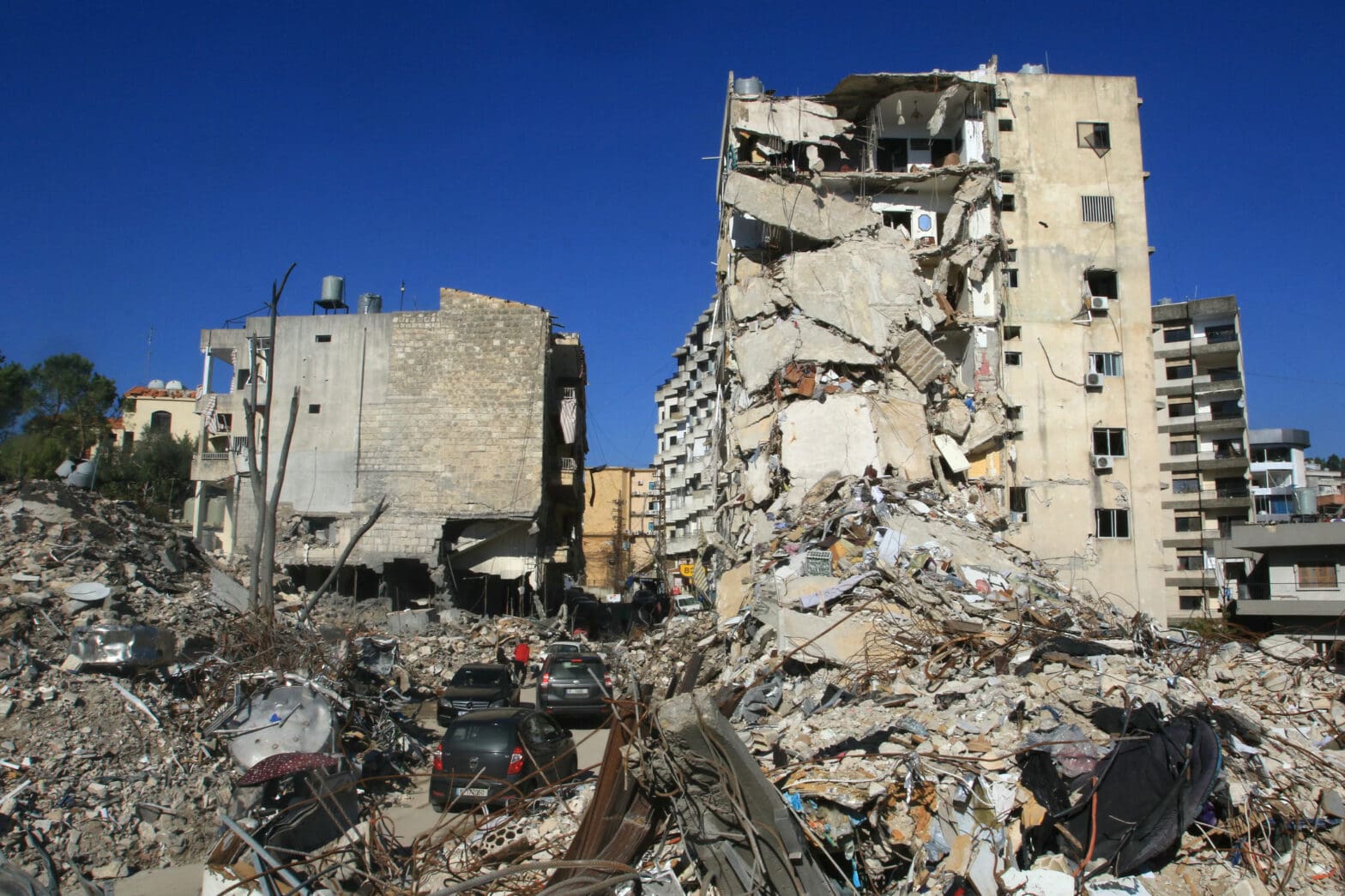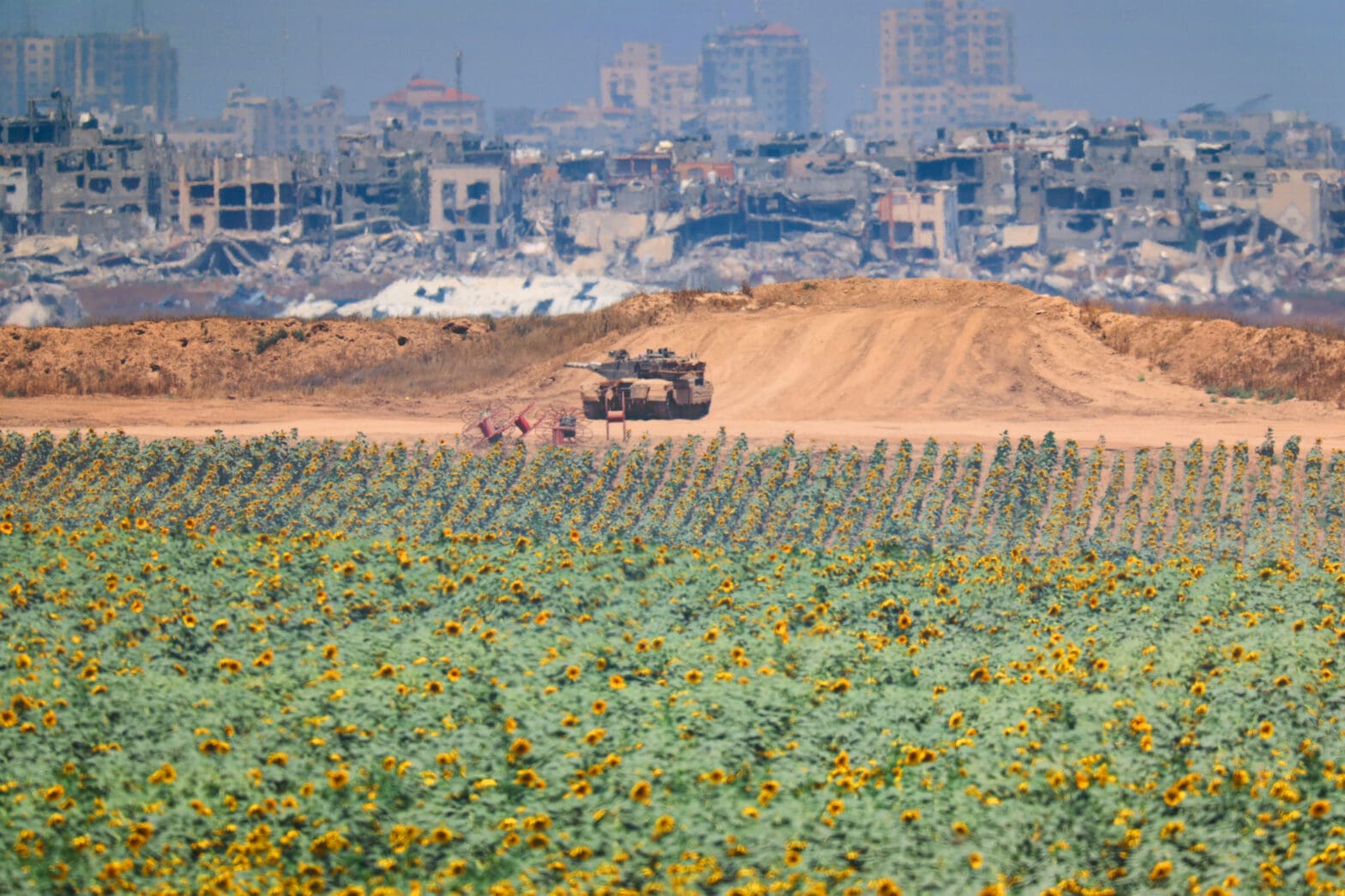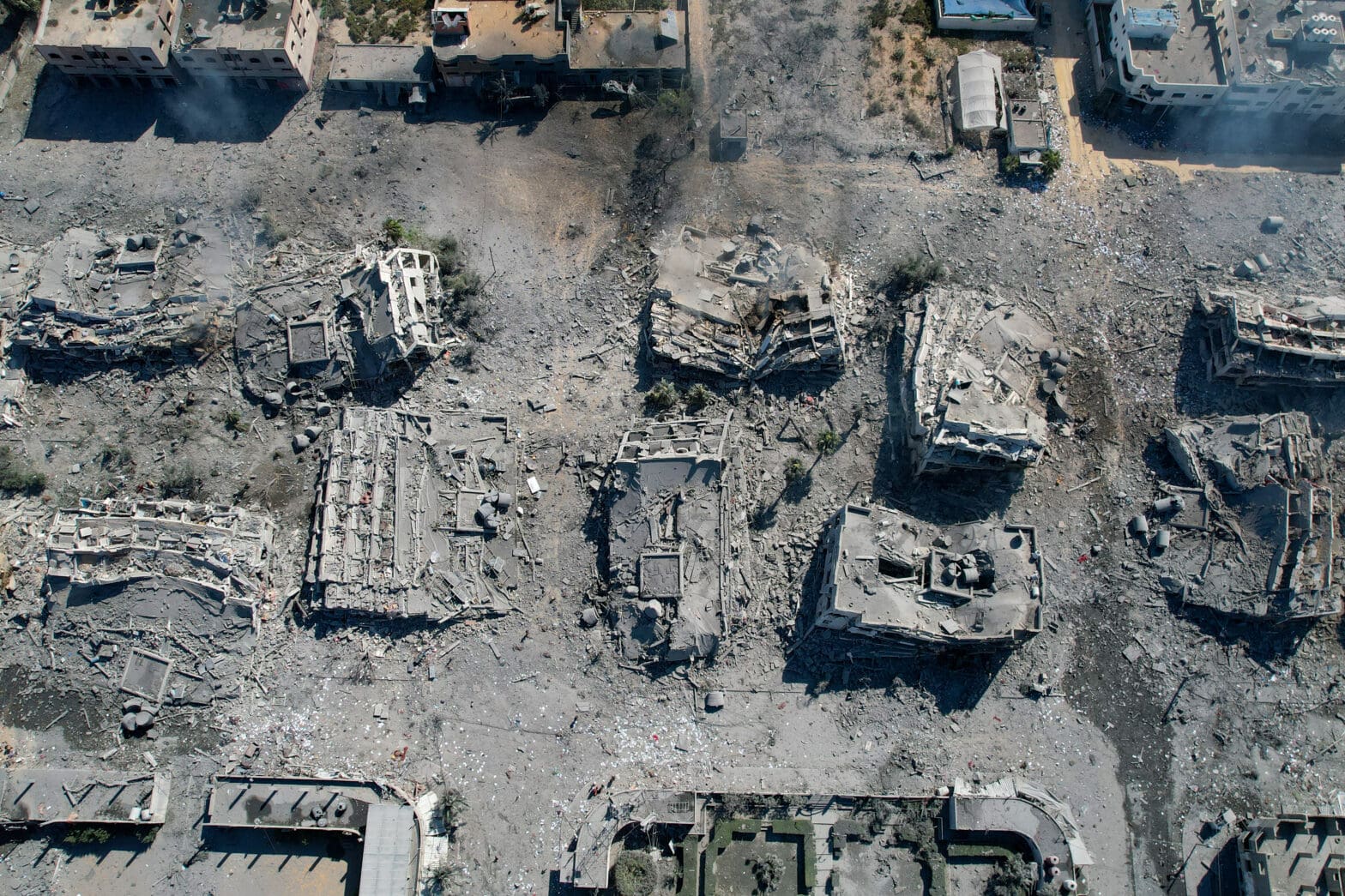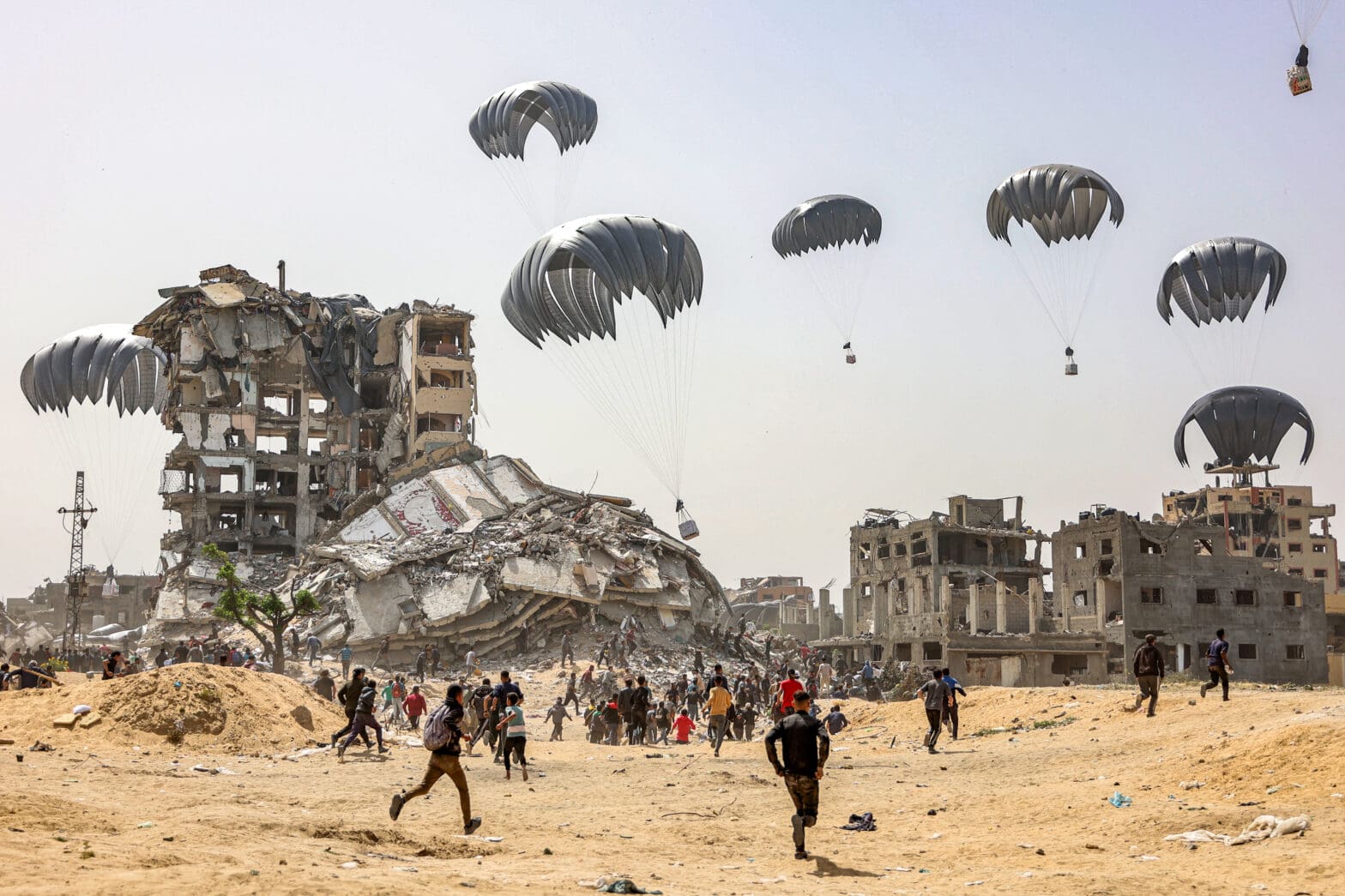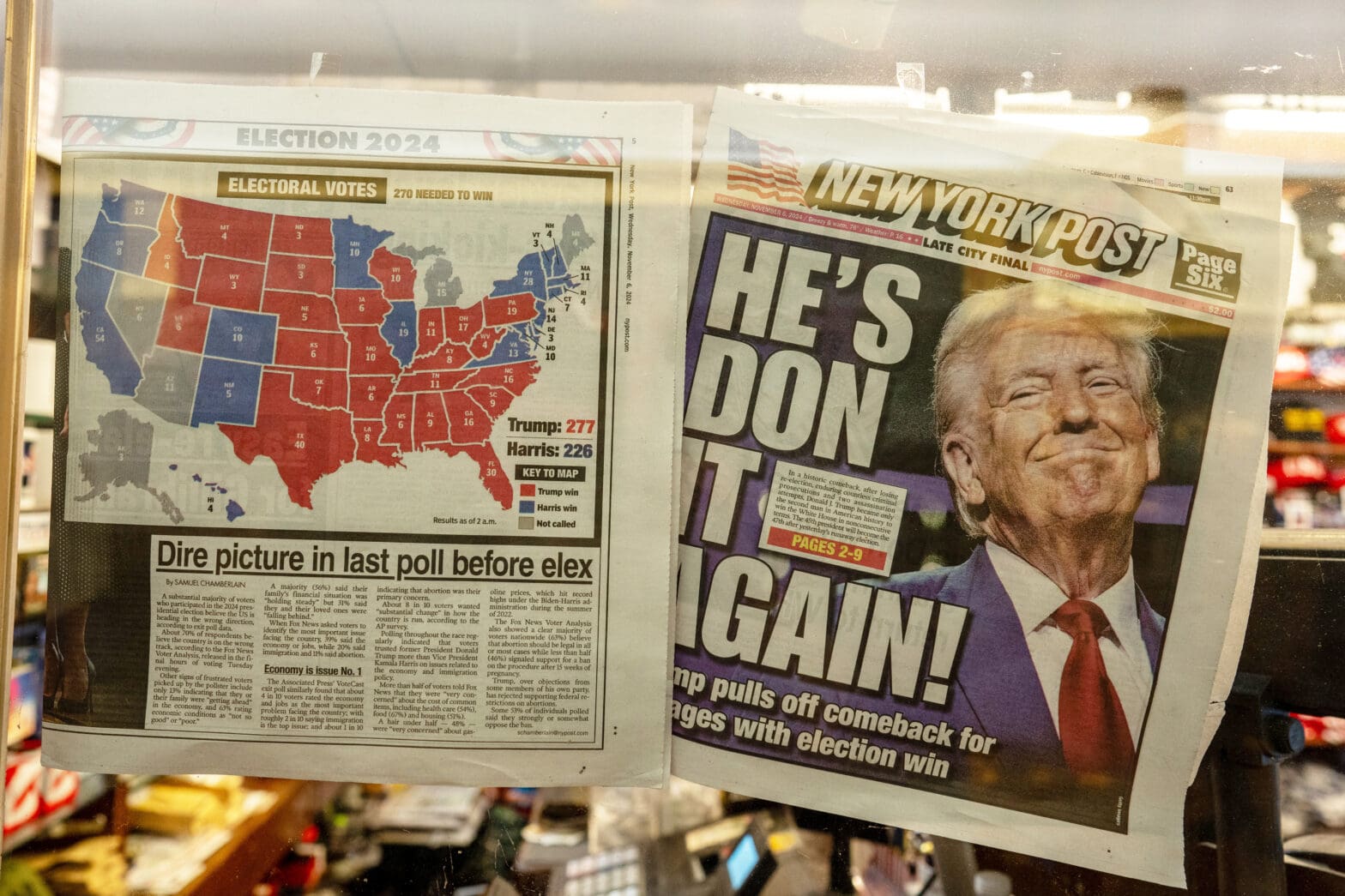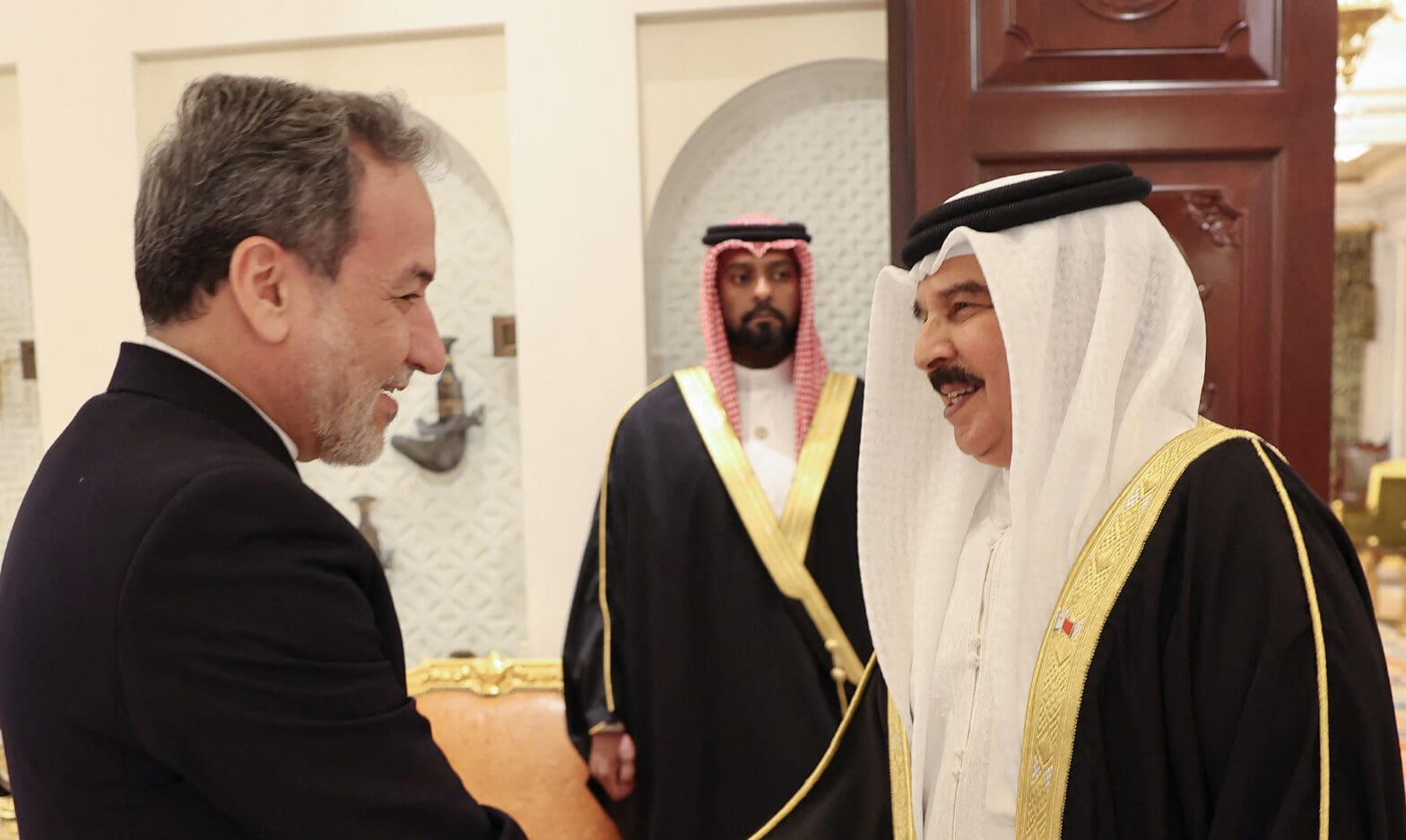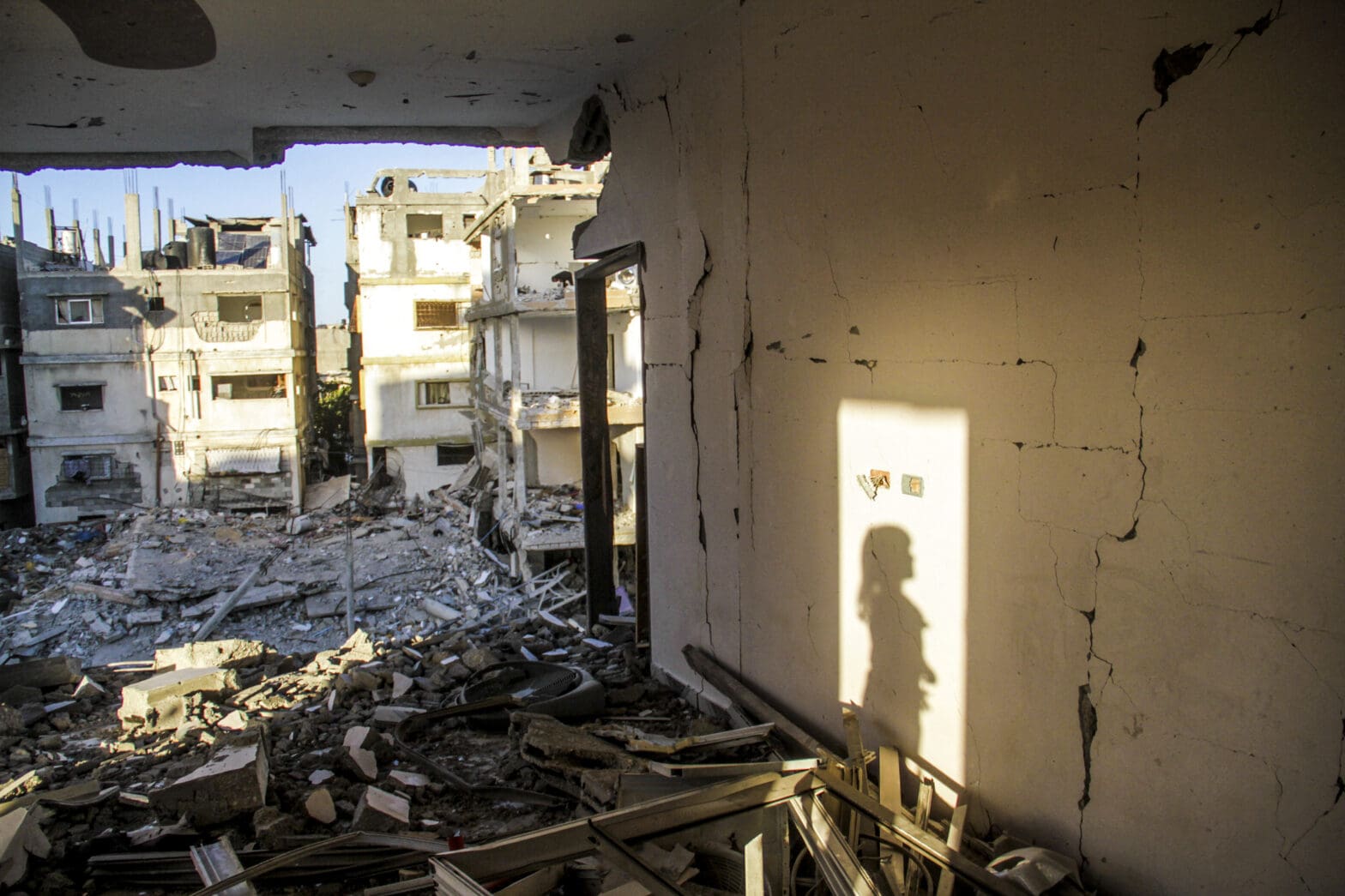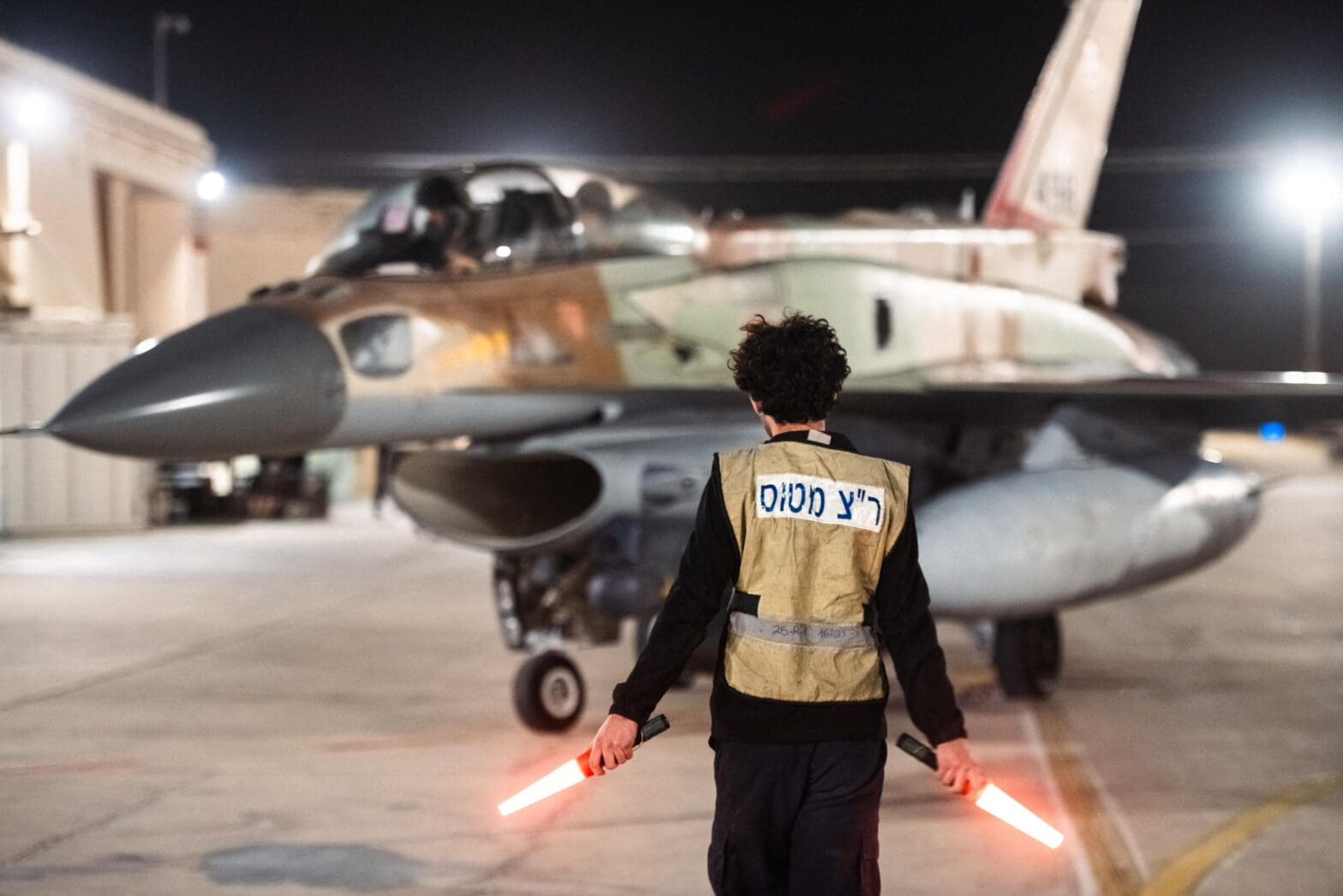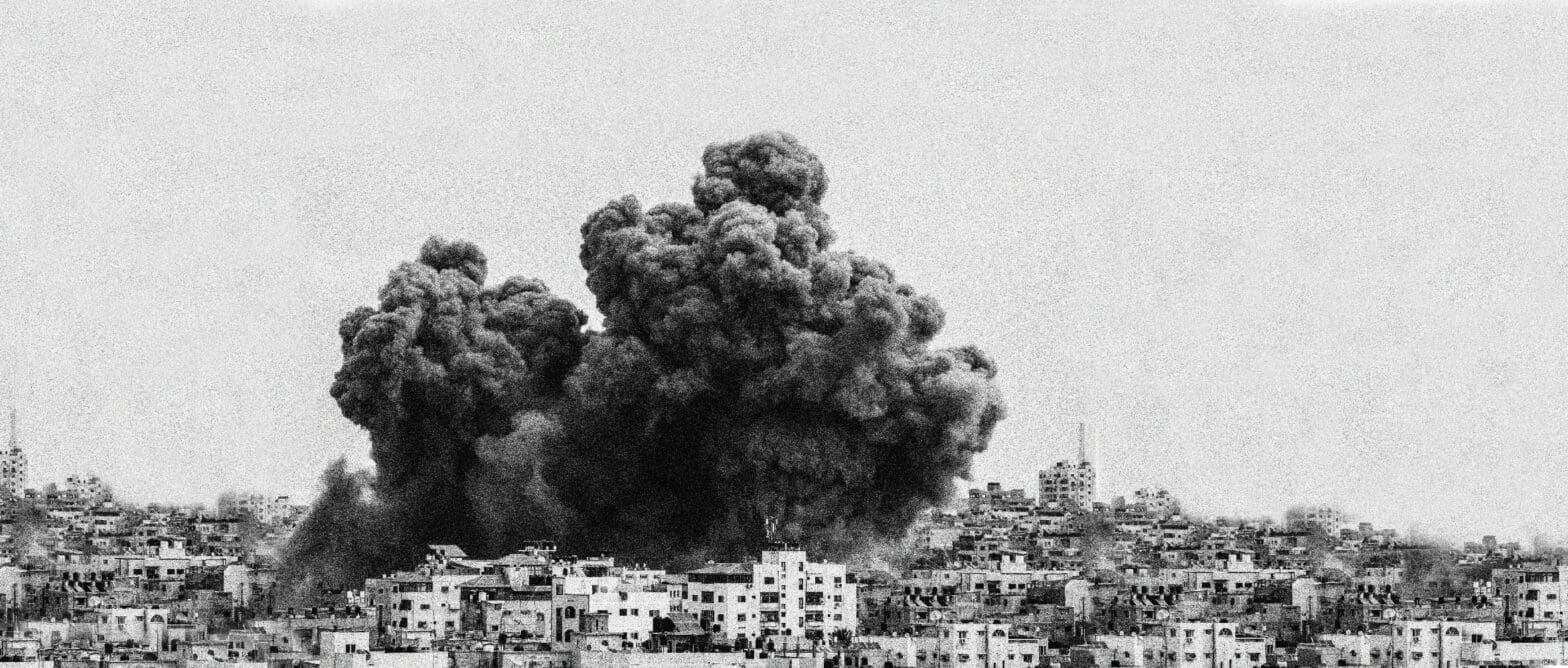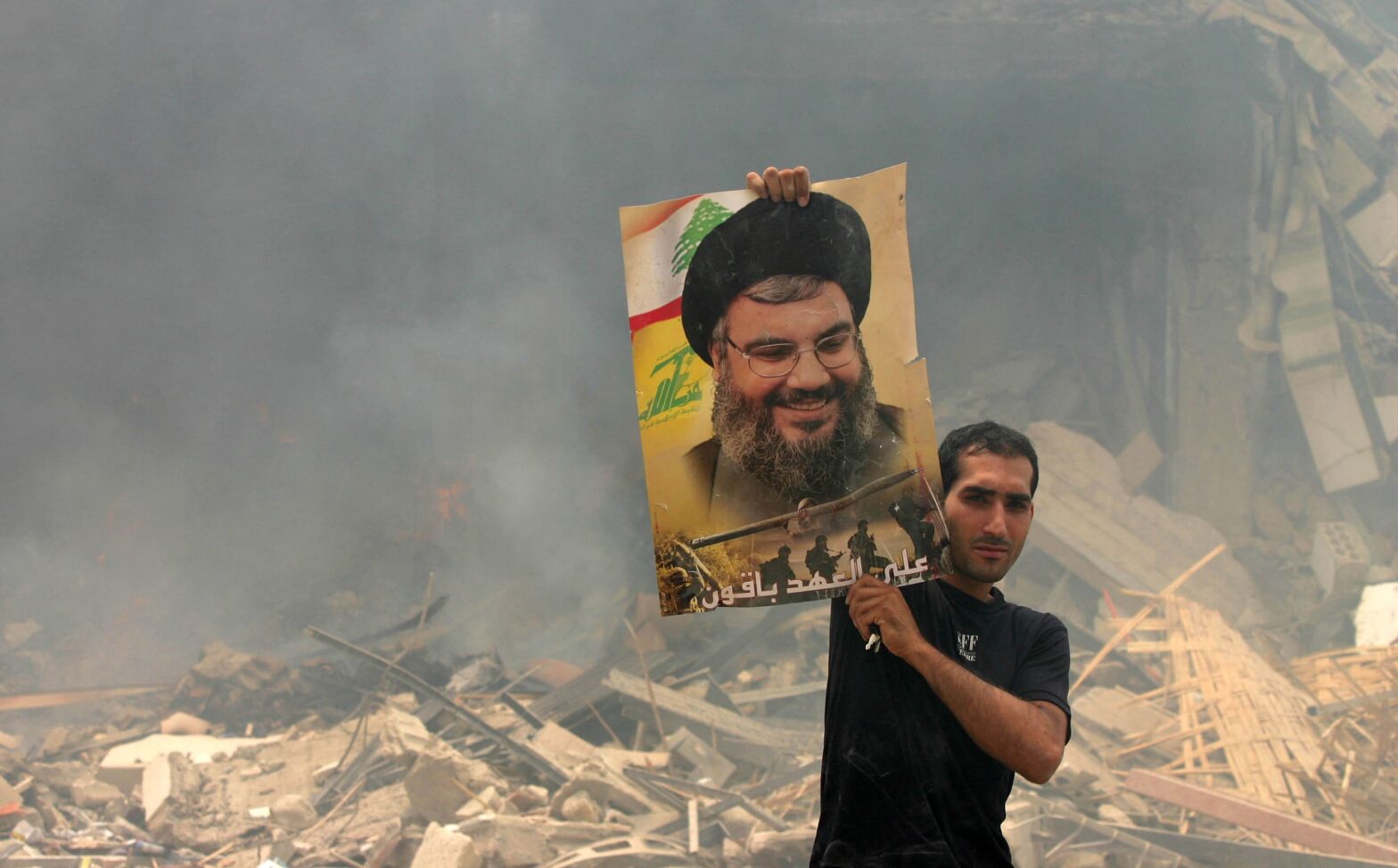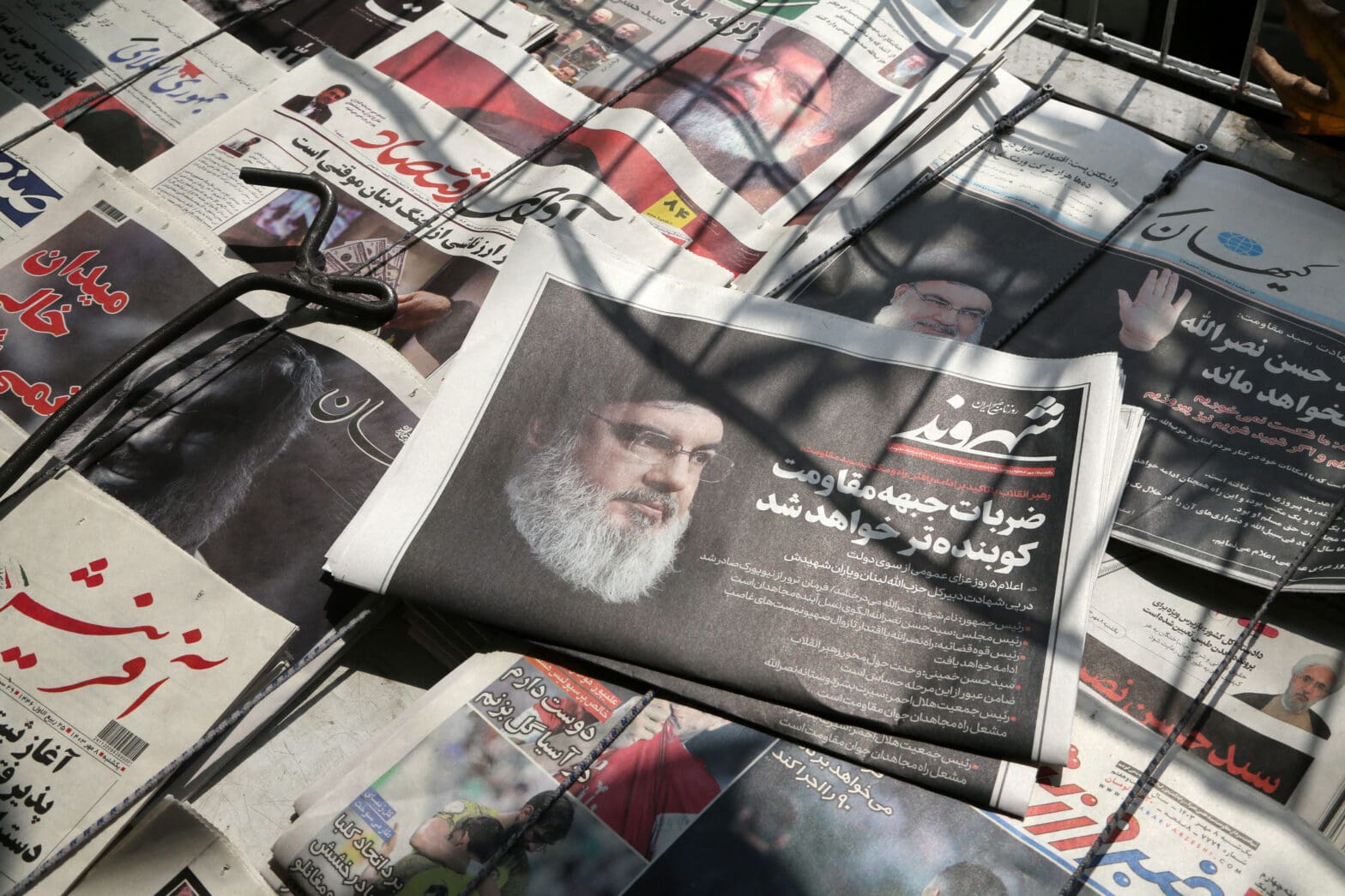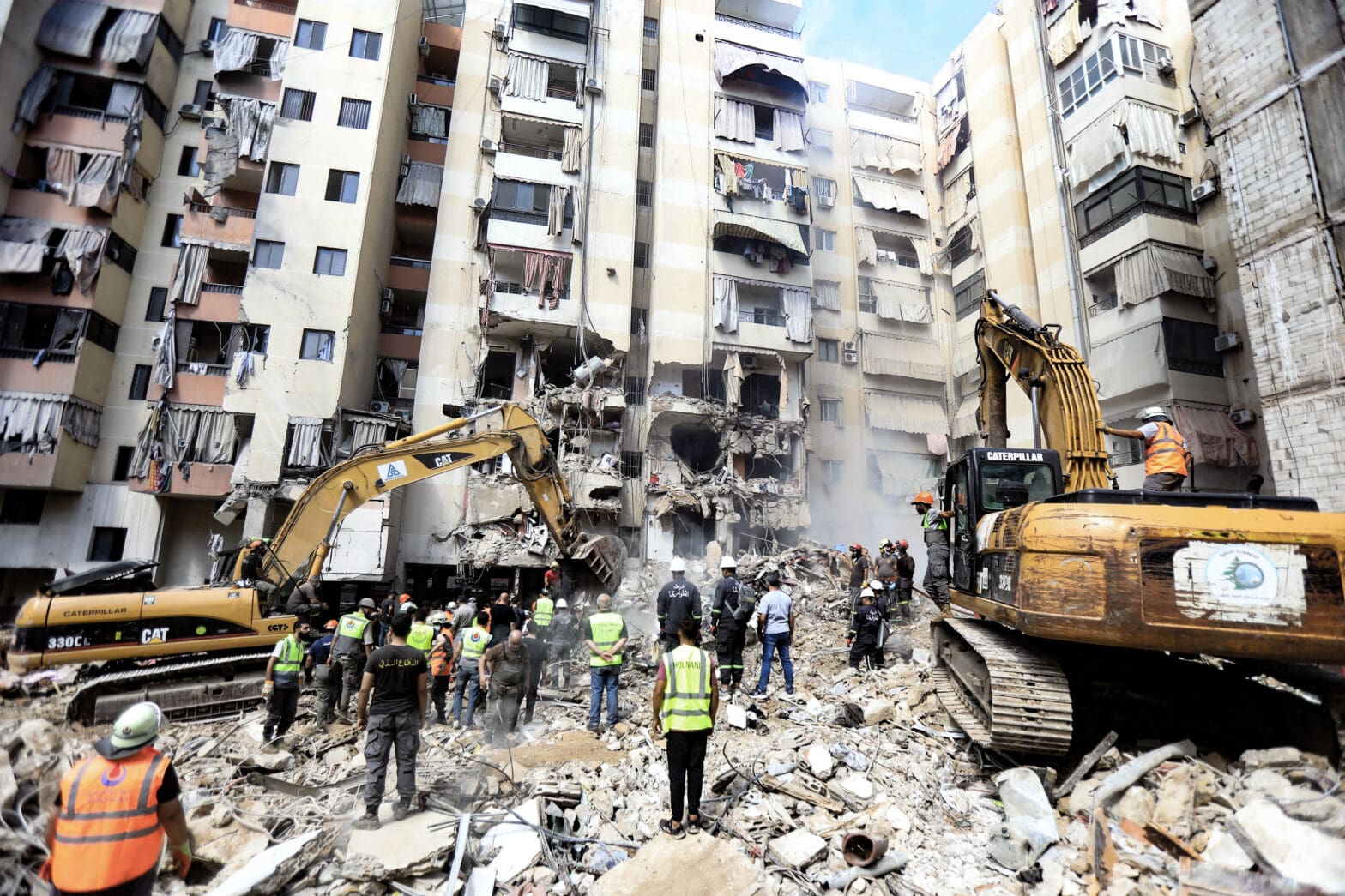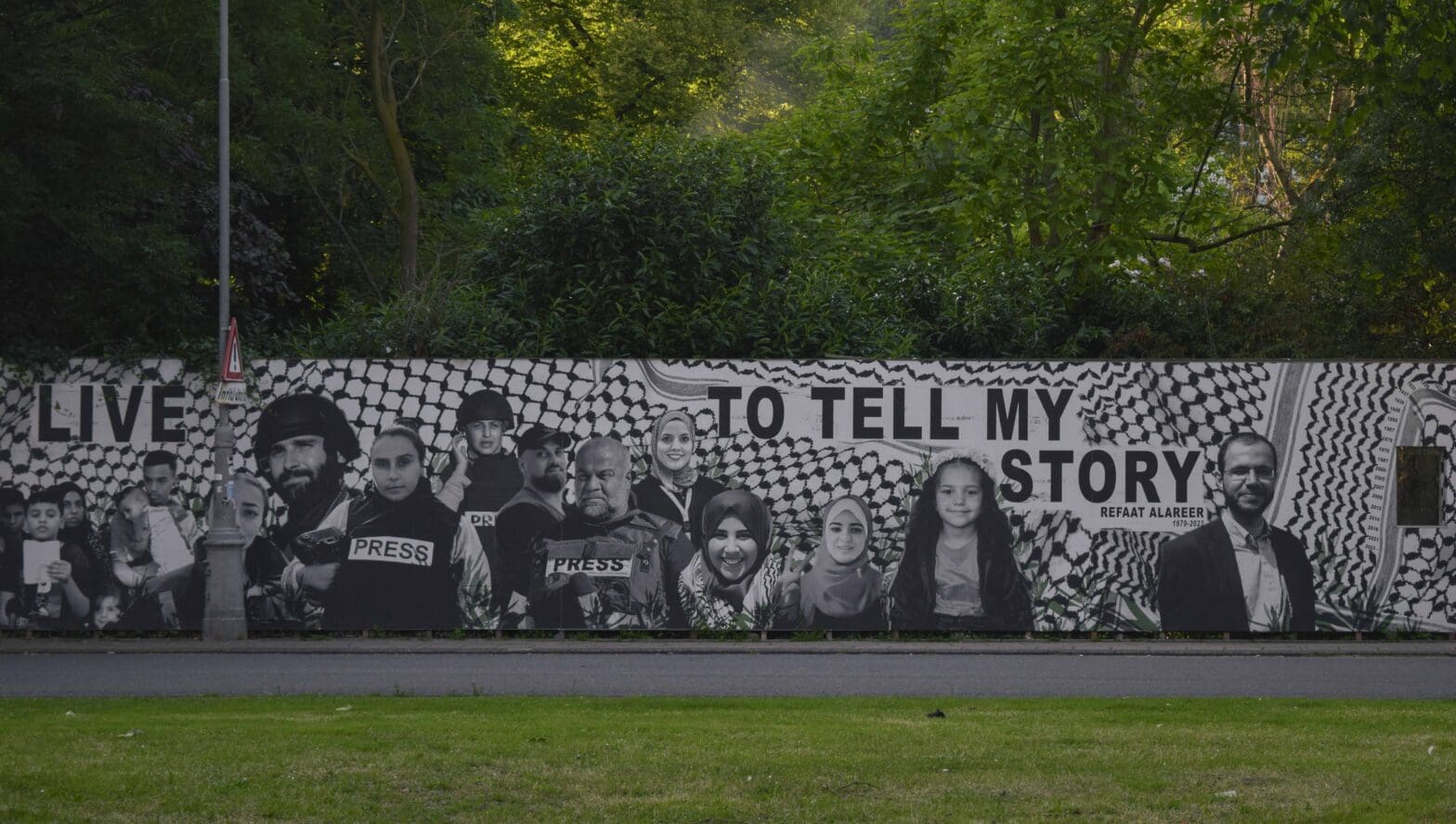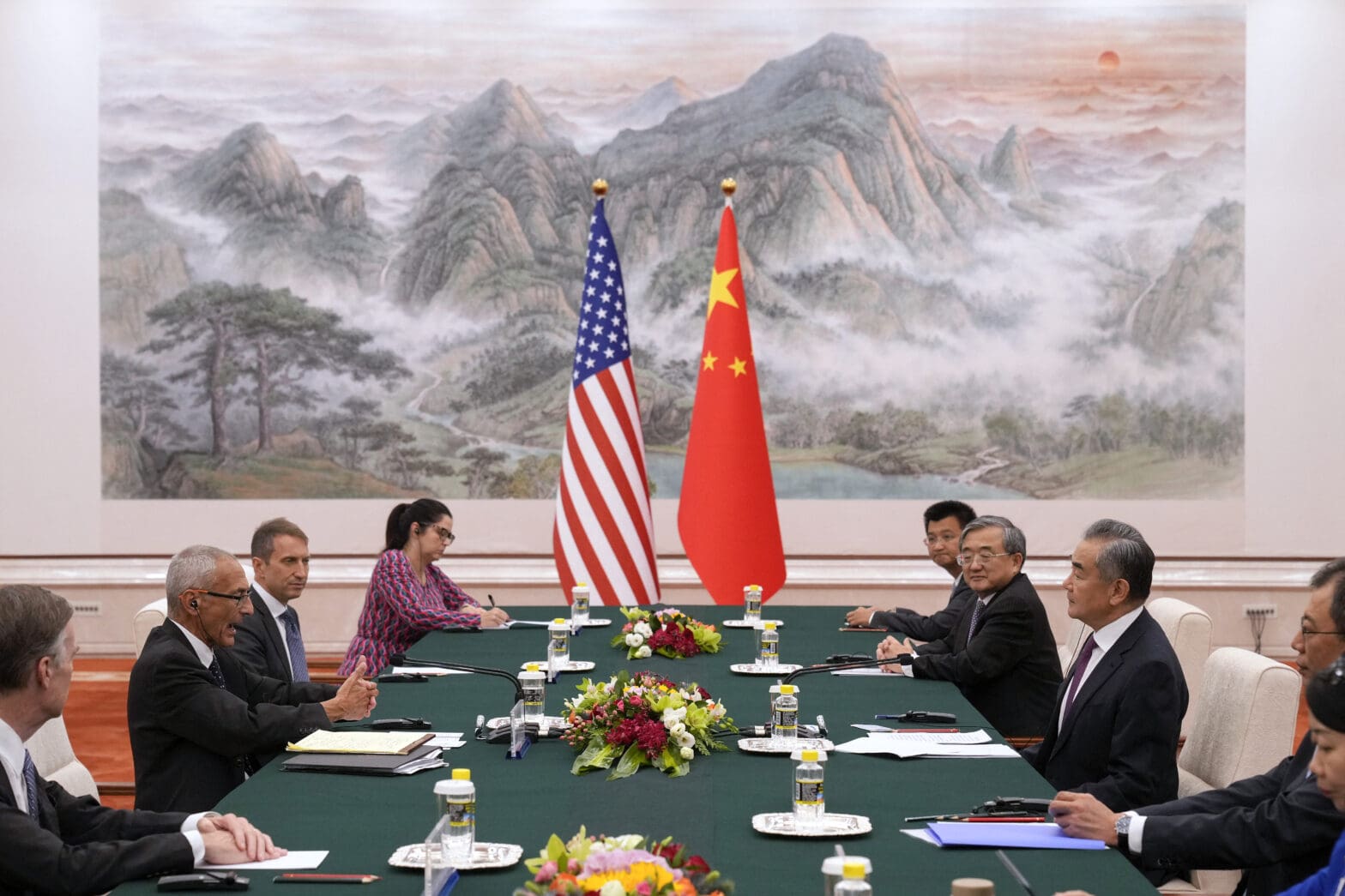Israel’s recognition of Somaliland as an independent state, ushered in by Foreign Minister Gideon Saar’s visit on January 6, is a geopolitical watershed that sheds further light on Israel’s evolving regional strategy after October 7. Much of the early commentary has been distorted by claims that the move is part of a transactional scheme to relocate Palestinians en… Continue reading Israel’s Somaliland Gambit Reflects a Doctrine of Endless Escalation
Afkar Country: Palestine-Israel
Reconstructing Gaza According to Trump’s Plan Would Be a Disaster
When Donald Trump’s 20-point “peace plan” was unveiled in late September, many countries in the Middle East and Europe rallied around it. The reason was not so much the plan’s contents, which justifiably raised eyebrows, but rather that it appeared to be the last, best hope to halt Israel’s appalling military onslaught in Gaza. For more than a month afterward, the U.S. sought a UN Security Council… Continue reading Reconstructing Gaza According to Trump’s Plan Would Be a Disaster
As War Looms, Lebanon Is Forced to Negotiate Under Fire
When Lebanese President Joseph Aoun announced in October that his country was prepared to engage in indirect negotiations with Israel, it marked a rupture with decades of political taboo—and was a tacit admission of how precarious Lebanon’s position has become. The move was not in response to a sudden diplomatic opening. It reflected something more… Continue reading As War Looms, Lebanon Is Forced to Negotiate Under Fire
Peacekeepers and UN Resolutions Will Not Save Gaza
On November 17, the United Nations Security Council passed Resolution 2803, which endorsed U.S. President Donald Trump’s 20-point plan for Gaza and authorized the deployment of an International Stabilization Force (ISF) to the territory until the end of 2027. Saudi Arabia, Qatar, Egypt, Jordan and the United Arab Emirates all subsequently backed the Security Council… Continue reading Peacekeepers and UN Resolutions Will Not Save Gaza
As Renewal of Iran-Israel War Looms, What Lessons Can Be Learned from June?
Since Israel’s 12-day war with Iran came to an end last June, the prospect of a return to fighting has loomed large, primarily because Israel has yet to achieve all of its goals vis-a-vis Iran and may be determined to do so. Though the war was likely driven by more than one consideration, Israel’s overarching… Continue reading As Renewal of Iran-Israel War Looms, What Lessons Can Be Learned from June?
Is Israel Undermining its Ties with China?
For decades, China and Israel have maintained a relatively strong and pragmatic relationship, grounded in extensive trade and technological cooperation. Yet after two years of Israeli devastation in Gaza, along with its broader military operations across the Middle East, it is clear that Israel’s actions have strained its relationship with Beijing. Although their ties have… Continue reading Is Israel Undermining its Ties with China?
With Mediation More Important Than Ever, Mediators Must Be Protected
Conflict mediation has emerged as one of the most indispensable tools in the contemporary international system. At a time when great-power competition intensifies across multiple domains, political, economic, and technological, the ability of neutral mediators to facilitate communication and reduce the risks of escalation is more crucial than ever. Yet despite its importance, conflict mediation… Continue reading With Mediation More Important Than Ever, Mediators Must Be Protected
Survival is Paramount as Decision Looms on Trump’s Gaza Proposal
U.S. President Donald Trump’s 20-point proposal for a ceasefire in Gaza, announced alongside Israeli Prime Minister Benjamin Netanyahu at the White House, is far from a clear and credible blueprint for ending the onslaught on the besieged Palestinian territory. Vague and devoid of timetables, it reads less like a peace plan and more like the… Continue reading Survival is Paramount as Decision Looms on Trump’s Gaza Proposal
Israel’s Strike on Doha: What It Means for the Region
On September 9, Israel’s military fired several missiles into a residential neighborhood in Doha targeting a meeting of senior Hamas officials discussing the latest American proposal for a ceasefire in Gaza. Although six people were killed, including a Qatari security official, none were the primary targets. The global backlash to the strike has been intense,… Continue reading Israel’s Strike on Doha: What It Means for the Region
Why Latin America’s New Left Is at the Forefront of Palestine Solidarity
Amid the ongoing humanitarian catastrophe in Gaza, several Latin American governments, such as Belize, Bolivia, Brazil, Colombia, Cuba, Honduras, Nicaragua and Chile, have emerged as leading supporters of the Palestinian struggle and prominent critics of Israeli policy. In response to what some of them consider as a genocidal campaign in Gaza, these governments have severed… Continue reading Why Latin America’s New Left Is at the Forefront of Palestine Solidarity
Five Years On, UAE-Israel Normalization Weathers the Gaza Storm
When the United Arab Emirates normalized relations with Israel five years ago, it likely expected a degree of discomfort given negative public opinion of Israel in the region amid its ongoing military occupation of Palestine. But the intensification of violent conflict—first in May 2021, and then on a much larger scale after October 7, 2023—has… Continue reading Five Years On, UAE-Israel Normalization Weathers the Gaza Storm
Recognizing a Palestinian State Is Not a Policy on Its Own
Against the backdrop of the daily horrors taking place in Gaza, a wave of Western countries have decided to recognize the State of Palestine. After Ireland, Spain and Norway took the step in 2024, France and Australia have pledged to follow suit at the United Nations General Assembly in September. The United Kingdom and Canada… Continue reading Recognizing a Palestinian State Is Not a Policy on Its Own
Israel’s Four Pillars of Mass Starvation in Gaza
It has been four months since Israel unilaterally terminated a ceasefire with Hamas and imposed a crippling siege on Gaza, preventing the entry of nearly all food, clean water, medicine and other essential supplies. The results have been catastrophic. On July 19 alone, 18 people were recorded as having died of starvation, while the… Continue reading Israel’s Four Pillars of Mass Starvation in Gaza
Israel’s Attack on Damascus is a Sign of Its Increasing Frustration and Belligerency
On July 16, the Israeli army launched a massive air strike against the Syrian Defense Ministry, killing at least three people. The strike represents a dramatic escalation against key institutions of a sovereign state, following two days in which the Israeli army targeted Syrian military convoys moving south. While Israel claims that the strikes are… Continue reading Israel’s Attack on Damascus is a Sign of Its Increasing Frustration and Belligerency
What the UAE Hopes To Gain from Israel’s Growing Isolation
When U.S. President Donald Trump visited the Gulf last month, complete with fanfare and choreographed spectacle, it reinforced a growing sense among Gulf states that the region is on a political ascent. The four-day tour of Saudi Arabia, Qatar and the United Arab Emirates was Trump’s first major foreign trip in his second term—a deliberate… Continue reading What the UAE Hopes To Gain from Israel’s Growing Isolation
As Israel Imposes Starvation and Displacement on Palestinians, U.S. Action is Demanded
The scenes of horror have become a regular occurrence. Tens of thousands of desperately hungry Palestinians packed into endless metal queues under a blistering sun, subjected to biometric scanning as they flood a dystopian aid complex, hoping for a box of food. Each day, hundreds are killed or wounded while making the harrowing choice between… Continue reading As Israel Imposes Starvation and Displacement on Palestinians, U.S. Action is Demanded
How Israel’s Dangerous New Grand Strategy Has Set Mideast on Fire
For more than a decade, Israeli Prime Minister Benjamin Netanyahu warned the world of Iran’s nuclear ambitions. He repeatedly accused Tehran of being on the cusp of acquiring a bomb, condemned diplomatic overtures as capitulation, and vowed Israel would never allow Iran to become a nuclear power. Yet despite the endless threats, leaked war plans,… Continue reading How Israel’s Dangerous New Grand Strategy Has Set Mideast on Fire
How Iran Is Calculating Its War With Israel
Iran’s response to Israel’s unprecedented military offensive has been constrained, reactive and shaped by a growing sense of vulnerability. While it has launched retaliatory strikes, these have been more limited in intensity and scope than many would have anticipated, given Tehran’s massive stockpile of ballistic missiles and drones. This restraint is believed to stem from… Continue reading How Iran Is Calculating Its War With Israel
The Islamic Republic’s Existential Crisis
Israel’s decision to launch airstrikes on Iran’s nuclear facilities and military should have come as no surprise following a year of devastating setbacks for the Iranian regime and its proxy network in the region. For almost a decade, the two sides have engaged in a shadow war and tit-for-tat military exchanges across several conflict theaters.… Continue reading The Islamic Republic’s Existential Crisis
Israel Applies Its Lebanon Playbook to Iran in Opening Salvo
In the early hours of June 13, Israel launched a large-scale aerial offensive against multiple military and nuclear-related targets inside Iran. Dubbed “Operation Rising Lion”, the strikes targeted senior military commanders, nuclear scientists, air defense infrastructure and suspected ballistic missile facilities. Israel has framed the campaign as a necessary measure to halt Iran’s advancing nuclear… Continue reading Israel Applies Its Lebanon Playbook to Iran in Opening Salvo
Israel’s Admission of Genocide
Since October 7, 2023, Israeli cabinet ministers, political figures, military officers and media pundits have openly and endlessly incited for the destruction of Gaza and its Palestinian inhabitants. Already by December 2023, South Africa had compiled an extensive record of these statements for its submission to the International Court of Justice (ICJ) alleging that Israel… Continue reading Israel’s Admission of Genocide
How Trump’s Government Cuts Will Affect U.S. Foreign Policy
Spurred on by Elon Musk and the Department of Government Efficiency, or DOGE, the second Trump administration has embarked upon a campaign of massive disruption within the federal government that will have serious implications for U.S. foreign policy in the Middle East and North Africa (MENA). One of the primary targets is the State Department.… Continue reading How Trump’s Government Cuts Will Affect U.S. Foreign Policy
The First 100 Days: Trump’s Middle East Policy Revisited
By any standard of the American presidency, the first 100 days of Donald Trump’s second term have been eventful, to say the least. From the dismantling of government institutions to the imposition of protectionist trade policies to the launching of negotiations with Iran and Russia, the implications of Trump’s early agenda have been far reaching… Continue reading The First 100 Days: Trump’s Middle East Policy Revisited
The Arab Plan for Gaza Has Two Problems: Israel and the PA
Egypt’s proposal for the reconstruction and administration of Gaza has emerged as an urgent intervention in the crisis that has unfolded since October 7, 2023. Backed by the Arab states, the Organization of Islamic Cooperation, and several European nations, the plan is not merely a humanitarian initiative—it is a geopolitical maneuver meant to counter the… Continue reading The Arab Plan for Gaza Has Two Problems: Israel and the PA
As Trump Imposes Tariffs, What Will U.S. Protectionism Mean for MENA and the Global Economy?
The United States has long been the world’s leading advocate for free trade, promoting it as a means of expanding global commerce and specialization in production that links economies into diversified supply chains. This has led to an unprecedented period of economic growth and poverty alleviation, a period anchored largely in an international rules-based order… Continue reading As Trump Imposes Tariffs, What Will U.S. Protectionism Mean for MENA and the Global Economy?
In Post-Genocide Gaza, Women Will Rise from the Rubble
On September 19, 2023, weeks before October 7 and the onset of the genocidal war that has consumed Gaza, 80 Palestinian women gathered in the blockaded territory to discuss the future. They were empowered leaders, successful entrepreneurs, professional businesswomen, committed academics and innovative engineers and scientists—all united under the umbrella of the Business and Professional… Continue reading In Post-Genocide Gaza, Women Will Rise from the Rubble
The Art of Disruption: How Trump’s Foreign Policy is Impacting MENA
Since returning to office on January 20, 2025, Donald Trump has issued 67 executive orders, more than double any other president in American history. Given that some of those orders have serious implications for the Middle East and North Africa, Afkār has compiled views from Middle East Council on Global Affairs scholars to analyze some… Continue reading The Art of Disruption: How Trump’s Foreign Policy is Impacting MENA
Could the Russia-Iran Comprehensive Partnership Treaty Challenge Gulf Security?
On January 17, the presidents of Iran and Russia met in Moscow to sign a 20-year “comprehensive strategic partnership treaty.” The agreement, which focuses primarily on enhancing trade and security cooperation, comes as each country indirectly confronts the United States in conflicts with Ukraine and Israel, and on the heels of the abrupt toppling of… Continue reading Could the Russia-Iran Comprehensive Partnership Treaty Challenge Gulf Security?
Why Trump’s Presidency Could Mean Closer EU-GCC Ties
The arrival of Donald Trump for a second term in the White House raises critical questions for the Middle East. Trump took office just days after a ceasefire deal aimed at ending a catastrophic 15-month war between Israel and Hamas, which had come close to dragging the region into an all-out conflagration. Now the president… Continue reading Why Trump’s Presidency Could Mean Closer EU-GCC Ties
TikTok Is Back, but for Whom?
U.S. users briefly lost access to popular social media platform TikTok earlier this week, following a legislative push to force the app’s Chinese-owned parent company to divest from its U.S. operations. While Donald Trump had endorsed the effort to ban the app during his first term, he recently reversed his stance, signing an executive order… Continue reading TikTok Is Back, but for Whom?
Will U.S. Sustain Pressure on Israel to Implement the Ceasefire Deal?
President-elect Donald Trump appears to have followed through with his promise to achieve a Gaza ceasefire before his inauguration on January 20. The incoming administration succeeded where the Biden administration failed, showing that U.S. pressure on Israel can lead to results. While many dismissed Trump’s threat that “all hell will break out” if the hostages… Continue reading Will U.S. Sustain Pressure on Israel to Implement the Ceasefire Deal?
MENA Outlook for 2025
With the December collapse of the Assad regime in Syria, 2024 came to a close in a dramatic and region-altering fashion. This, along with the numerous other major trend lines and points of conflict, likely makes 2025 a year that will be significant in reshaping the region’s future. Looking forward to what may be coming,… Continue reading MENA Outlook for 2025
With Axis of Resistance in Retreat, How Will Iranian People Respond?
Iran’s regional policy is on the backfoot. Years of patronage and investment in the “Axis of Resistance,” a network of friendly actors that share Iran’s hostility toward U.S. hegemony in the Middle East, has unraveled in a short period of time and caught the Iranian regime off guard. While Iran’s leadership scrambles for a response,… Continue reading With Axis of Resistance in Retreat, How Will Iranian People Respond?
Regional Economy Faces Plenty of Challenges—and Reasons for Hope—in 2025
Despite the turmoil rocking the Middle East and North Africa (MENA), there may be some glimmers of hope for the region’s economies in 2025. The World Bank and the International Monetary Fund (IMF) are both projecting an uptick in growth in most MENA economies. However, structural challenges, political instability, and geopolitical tensions will continue to… Continue reading Regional Economy Faces Plenty of Challenges—and Reasons for Hope—in 2025
A Crisis Averted in Palestinian Banking Portends a Total Collapse
In early December, the Palestinian banking sector narrowly avoided financial freefall, as Israel’s far-right finance minister toyed with removing a crucial safeguard underpinning the correspondent relationship between Palestinian and Israeli banks. These safeguards protect the Israeli side from domestic and international legal risks arising from transactions with their Palestinian counterparts, offering immunity and indemnity if… Continue reading A Crisis Averted in Palestinian Banking Portends a Total Collapse
Arab Public Opinion Under Pressure
Editor’s Note The relevance of public opinion in the Middle East and North Africa is a question often debated but little understood. Given the high prevalence of autocracy, surveys of popular sentiment are limited, while freedoms of speech and press are not the norm. Indeed, as thousands of political prisoners freed in recent days from… Continue reading Arab Public Opinion Under Pressure
Can the Israel-Hezbollah Ceasefire Hold?
After more than a year of hostilities that intensified dramatically in recent months, Hezbollah and Israel have agreed to a ceasefire, but the fragile agreement has already been tested by reported violations. In this interview with Afkār, Saoud El Mawla, visiting senior fellow at the ME Council, examines the deal’s significance and durability, as well… Continue reading Can the Israel-Hezbollah Ceasefire Hold?
Widening Geopolitical Fault Lines Challenge Collective Action on Climate
The United Nations Climate Change Conference (COP29) held in Azerbaijan this year wrapped up in tumultuous fashion, as representatives of “highly dissatisfied” poorer nations walked out in protest. While COP29 was ultimately salvaged with a deal to provide $300 billion in annual “loss and damage financing” to the world’s most vulnerable states, the unmistakable take-away… Continue reading Widening Geopolitical Fault Lines Challenge Collective Action on Climate
Trump Must Focus on Rebuilding a War-Torn Middle East
U.S. President-elect Donald Trump has become the first Republican candidate in 20 years to win the popular vote. His historic win hands him control of the Senate, Congress and the Republican party, along with a strongly conservative-leaning Supreme Court. How will this power be deployed? If we take Trump’s election rhetoric literally, his “Maganomics” agenda will be… Continue reading Trump Must Focus on Rebuilding a War-Torn Middle East
Lack of Palestinian Leadership Exacerbates Post-October 7 Crisis
For more than a year, Palestinians have faced a systematic and relentless assault on their homeland, amounting to the most profound crisis since the Nakba of 1948. Following the events of October 7, 2023, Israel has embarked on a genocidal campaign against the population of the Gaza Strip and stepped up its repression in the… Continue reading Lack of Palestinian Leadership Exacerbates Post-October 7 Crisis
Trump’s Return and Implications for the Middle East
On November 6, within hours of closing the polls, Donald Trump was declared the winner of the 2024 presidential election in the United States, defeating Vice President Kamala Harris by a wide margin. Trump’s remarkable triumph, which will return him to the White House after his defeat to Joe Biden in 2020, comes at a… Continue reading Trump’s Return and Implications for the Middle East
Efforts To Restore Bahrain-Iran Ties Gather Momentum
On October 21, Iran’s Foreign Minister Abbas Araghchi visited Manama and met with King Hamad bin Isa Al Khalifa, marking a significant turning point in Iran-Bahrain relations that have been severed since 2016. This visit—the first by an Iranian foreign minister to Bahrain since 2010—took place amid an escalating military confrontation between Iran and Israel. While Bahrain… Continue reading Efforts To Restore Bahrain-Iran Ties Gather Momentum
Adapting the Women, Peace and Security Agenda to the Arab World
When United Nations Security Council (UNSC) resolution 1325 on Women, Peace and Security (WPS) was adopted on October 31, 2000, it marked an unprecedented commitment by the international community to regard women as integral partners in peace processes. The WPS “agenda,” as it came to be known, encompasses ten UNSC resolutions that recognize the devastating… Continue reading Adapting the Women, Peace and Security Agenda to the Arab World
How Will Iran React to Israel’s Latest Strikes?
On October 26, Israel carried out a long-anticipated strike against Iran, which came in retaliation for an Iranian missile barrage on Israel earlier this month—itself a response to a series of Israeli assassinations of Iranian, Hezbollah, and Hamas leaders since July. The latest exchange, however, marks a significant escalation in the confrontation between the two… Continue reading How Will Iran React to Israel’s Latest Strikes?
A Region Under Fire
Editor’s Note: There Are No Winners Here Omar H. Rahman, Fellow and Editor of Afkār, Middle East Council on Global Affairs The Israeli-Palestinian conflict did not begin on October 7, 2023. Decades of military occupation, colonial land theft and systemic deprivation had already pushed Palestinians into a state of constant struggle, laying the groundwork… Continue reading A Region Under Fire
Interview: Hezbollah After Nasrallah
On September 28, Hezbollah confirmed the death of its longtime leader Hassan Nasrallah following a massive Israeli airstrike in the Dahiyeh suburb of Beirut. The assassination of Nasrallah follows a series of escalatory measures that includes the disruption of Hezbollah’s communication network through an explosive pager operation, the assassinations of other senior leaders in the… Continue reading Interview: Hezbollah After Nasrallah
Interview: A Step Back for Iran’s “Forward Defense”
In recent weeks, Israel has dramatically escalated its attacks in Lebanon, dealing a critical blow to much of Hezbollah’s top military leadership, including the late Secretary General Hassan Nasrallah. In this interview with Afkār, Hamidreza Azizi, an Iran expert and security analyst, offers his insights on Tehran’s strategic calculus at this watershed moment, including on… Continue reading Interview: A Step Back for Iran’s “Forward Defense”
Interview: Israel and Hezbollah Enter a New Stage of War. What’s Next?
On September 23, Israel began a major military offensive against Lebanon that left around 500 people dead, mainly civilians, and caused mass panic across the south of the country. This followed days of strikes against Hezbollah commanders and a surprise attack on Hezbollah personnel by triggering the explosion of thousands of low-tech communications devices like… Continue reading Interview: Israel and Hezbollah Enter a New Stage of War. What’s Next?
As Mainstream Media Fails Gaza, Social Media Fights to Tell the Real Story
The war on Gaza which erupted in October has captured global attention due to the significant humanitarian cost, extensive infrastructure damage, and high casualty figures. According to UNICEF, tens of thousands of people have been killed in the past 10 months, including more than 14,000 children. Many more have been seriously injured or remain missing under… Continue reading As Mainstream Media Fails Gaza, Social Media Fights to Tell the Real Story
Can China and the U.S. Cooperate in the Middle East?
Cooperation between China and the United States in the Middle East has become a common topic of discussion between academics and experts these days. The two great powers have vested interests in the region that are jeopardized by its chronic instability and the growing threat of regional war. Cooperation between the two should be a… Continue reading Can China and the U.S. Cooperate in the Middle East?

